Jeremy Corbyn
description: a British politician who served as the leader of the Labour Party from 2015 to 2019.
151 results

The Dream of Europe: Travels in the Twenty-First Century
by Geert Mak · 27 Oct 2021 · 722pp · 223,701 words
-nationalist Law and Justice party (PiS). In that same year, the British Conservative Party came back into office after thirteen years. Under the leadership of Jeremy Corbyn, Labour returned to its radical-left principles. In the Netherlands, Geert Wilders’s right-wing populist Party for Freedom had the wind in its sails
…
Front National grew to become the country’s second party; and in Britain the Labour Party, in a political earthquake, chose the radical left-winger Jeremy Corbyn as its leader. In 2017, the Party for Freedom led by Geert Wilders became the second-largest political force in the Netherlands. In Germany, the
…
a television series, but it leaves little room for the boring work of coalition, consultation and compromise. When the crisis surrounding Brexit escalated, opposition leader Jeremy Corbyn turned out not to have Theresa May’s mobile phone number, nor to have any use for it. In many European countries, where informal contacts
…
. Labour suffered its most crushing defeat since 1935. The party had refused to make a clear choice in the Brexit debate, and the figure of Jeremy Corbyn – who resigned as Labour leader in April 2020 – had repelled many voters. All the same, the results were distorted by the British constituency system, since
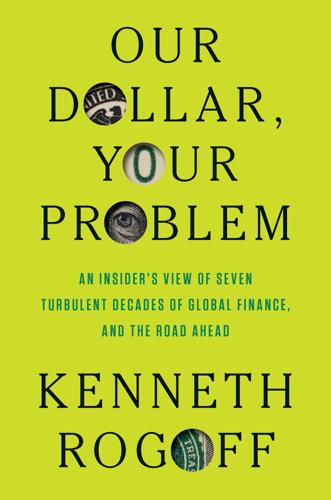
Our Dollar, Your Problem: An Insider’s View of Seven Turbulent Decades of Global Finance, and the Road Ahead
by Kenneth Rogoff · 27 Feb 2025 · 330pp · 127,791 words
country down the primrose path from 1999 to 2013, was showered with praise and support—for example, by the former U.K. Labour Party leader Jeremy Corbyn and the Nobel Prize winner Joseph Stiglitz, whose writings Chávez admired.6 Under Chávez, Venezuela’s economy began a slow and steady descent despite high
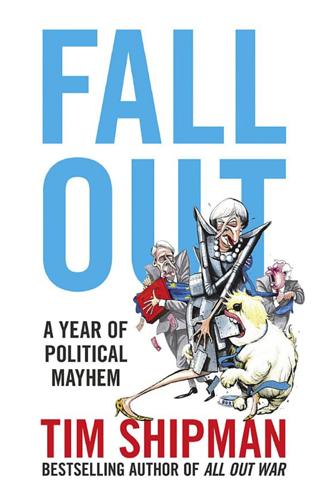
Fall Out: A Year of Political Mayhem
by Tim Shipman · 30 Nov 2017 · 721pp · 238,678 words
including thirteen of cabinet rank, more than twenty-five Tory campaign staff, more than a dozen senior figures in the Labour Party, the shadow cabinet, Jeremy Corbyn’s office and the trade unions, as well as civil servants, special advisers, diplomats, former ministers, MPs and pollsters. During the time covered by
…
to create ‘a country that works for everyone’ 7 Sep – May insists she will not give a ‘running commentary’ on Brexit negotiations 24 Sep – Jeremy Corbyn re-elected as Labour Party leader 30 Sep – Carlos Ghosn, Nissan’s CEO, says he could scrap potential new investment in its Sunderland plant 2
…
Park, but the party was ready – after four months of infighting triggered by the referendum – to play a leading role in the Brexit drama. Jeremy Corbyn’s problems had begun the day after the EU referendum, when he said in an interview that Article 50 should be triggered immediately. This enraged
…
‘a choice between strong and stable leadership in the national interest, with me as your prime minister, or weak and unstable coalition government, led by Jeremy Corbyn’. Top of the ‘key points to remember’ handed to the cabinet and emailed to MPs was, ‘We need this election now to secure the
…
Tories would triumph were ‘leading voters to believe that they can vote for the best local MP … while still remaining secure in the knowledge that Jeremy Corbyn will not be prime minister’. In expressing his reservations, Textor deployed one of his favourite analogies to describe Tory support, comparing it to Lake
…
of the campaign, was point five: ‘Use Theresa May as the campaign’s main communication vehicle – and take every opportunity to contrast her with Jeremy Corbyn.’ The chiefs needed very little persuading that May should be thrust front and centre. Timothy admitted later, ‘To be perfectly honest I didn’t really
…
against a Labour opposition which was far more divided and just as unprepared for the fight ahead as they were. 13 Leninists and Lennonists Jeremy Corbyn was recording a segment for Victoria Derbyshire’s BBC2 current affairs show when James Schneider’s phone started buzzing with news that May was due
…
– that was never formulated,’ a campaign official said. To the leader’s office the campaign themes were clear enough: austerity and Tory cuts bad, Jeremy Corbyn good. To them, the constant demands for New Labour-style plans were evidence that Southside’s veterans did not understand their leader. The difference of
…
.’ For three days May’s team seethed, but they also realised Selmayr had presented them with a political opportunity. Struggling to persuade voters that Jeremy Corbyn had a credible chance of becoming prime minister, May and Crosby embraced the chance to find a new villain to drum up votes. A senior
…
audience, but May’s tweets were rare and stilted. Consequently, her Twitter account had just 300,000 followers, compared with 1.2 million for Jeremy Corbyn. By the end of the campaign, Corbyn’s 120,000 Instagram followers approached ten times May’s reach. Conservative campaigners looked with envy at Corbyn
…
and May’s ‘stratospheric’ personal approval ratings. May then informed ministers that Ben Gummer would be ‘harvesting ideas’ for the manifesto. So peripheral was Jeremy Corbyn to May’s thoughts that ministers said afterwards it was the first discussion they had ever had in a political cabinet under May about how
…
he added, ‘The words that people associate with Corbyn are “floundering”, “weak” and “nonsensical”.’ But Textor added, ‘We need to raise the emotional expectation that Jeremy Corbyn can win.’ The argument he told MPs to use was this: ‘If these clowns fuck up Brexit it will hurt local jobs and businesses.’ He
…
.’ The collapse of Ukip and Farron’s ‘gaygate’ distractions ensured that if protest voters were looking for a home, or if Theresa May faltered, Jeremy Corbyn had political space to offer working-class Brexiteers and metropolitan Liberals something different to believe in. It was an opportunity Labour was to seize with
…
17 Manifesto Destiny The general election of 2017 was turned on its head on the evening of Wednesday, 10 May, when James Schneider, one of Jeremy Corbyn’s media spokesmen, took two calls that sent shockwaves through Westminster. The first was from Jack Blanchard, the political editor of the Daily Mirror, one
…
announcement was top of the all-important drive-time bulletins on Heart, Capital, Classic FM, LBC and Smooth. An aide recalled, ‘The headlines were, “Jeremy Corbyn cracks down on high pay, economists say it’s mad”. Perfect! That will mean millions of people will hear something they like and that some
…
Telegraph.’ Crosby, Nick Timothy and the political team looked it over and agreed a response. They branded the leak ‘a total shambles’ and condemned ‘Jeremy Corbyn’s plans to unleash chaos on Britain’. The following morning Corbyn announced that there would be a leak inquiry, and there was talk of bringing
…
to sign off the manifesto, at the Institute of Engineering and Technology on Savoy Place, said it was ‘beyond insane’. Outside, the car carrying Jeremy Corbyn ran over the foot of BBC cameraman Giles Wooltorton. Inside, the room was stuffed with the entire shadow cabinet, the entire NEC, a dozen union
…
our Brexit negotiations must demonstrate that it has the credible economic plan and the capable team,’ she said. ‘No one could look at what Jeremy Corbyn and his Labour Party offered yesterday and conclude that it passed that test.’ Sadly for May, she then failed the crucial campaign test of navigating
…
minimum service levels were not guaranteed during industrial action – a policy that was dropped but which might have alienated public sector employees enough to put Jeremy Corbyn into Downing Street. Top of the list of problem policies was ‘Scrap the Winter Fuel Payment for all but the poorest of pensioners at
…
and the issue rumbled on. A suggestion by Rob Oxley that they turn the issue around and attack Labour for suggesting that rich pensioners like Jeremy Corbyn and Mick Jagger should keep the perk was rejected. David Davis said later, ‘Basically what we did was have a manifesto that upset each
…
the launch of the Conservatives’ Welsh manifesto in Wrexham. May delivered her prepared lines well, attacking the ‘fake claims, fear and scaremongering’ peddled by Jeremy Corbyn, before pivoting into the main announcement: ‘I want to make a further point clear. This manifesto says that we will come forward with a consultation
…
were up all night liaising with the police and the intelligence services. Sometime after 3 a.m. the Downing Street switchboard patched May through to Jeremy Corbyn. The Labour leader agreed immediately to her suggestion that the campaign be suspended. ‘There wasn’t that much advice getting to Jeremy at that
…
. We all thought that was just a dreadful decision. It took active officers off a terrorist crime scene in order to facilitate a visit by Jeremy Corbyn – but he got good pictures out of it.’ Murphy’s approach to the police was ‘very tetchy’ throughout the campaign. Armed officers were only
…
. ‘People were more concerned about security. But when kids were literally being blown up in Manchester, it’s a lot harder to believe that Jeremy Corbyn thinks that terrorists are brilliant.’ Corbyn’s views did hurt him with some voters. Labour parliamentary candidates began telephoning moderates at campaign headquarters to complain
…
said. ‘That was the way it was talked about.’ Without Crosby, though, campaign officials think the campaign might have fallen apart altogether, and delivered Jeremy Corbyn into Downing Street. The period after the U-turn was a dangerous one in Matthew Parker Street. MPs and party donors were on edge. ‘The
…
‘more borrowing, more borrowing, more borrowing’. This time, Rudd was encouraged to stress that a vote for each of the minor parties would lead to Jeremy Corbyn becoming prime minister: ‘Vote Lib Dem, get Corbyn; vote Green, get Corbyn; vote Ukip, get Corbyn …’ At that stage, Rudd had no idea that
…
‘go and run the CAC election for him and Katy Clark, because he thought that being on the Conference Arrangement Committee was more important than Jeremy Corbyn being leader of the Labour Party’. Yet if Momentum was established, to use the shorthand description of the Corbynistas, by an arch ‘Leninist’ fighting
…
Clark was just a thirty-something from Nottinghamshire who posted 163 articles in seven weeks from his home, with headlines such as ‘How many of Jeremy Corbyn’s policies do you actually disagree with?’, but nonetheless had the same reach online as the Sun newspaper. Zarb-Cousin said, ‘I think this
…
labelling former Blairites ‘red Tories’ and devising a dialect of their own in which non-lefties were branded ‘absolute melts’, ‘slugs’ or ‘centrist dads’, while Jeremy Corbyn was ‘the absolute boy’. In this language, attacking an opponent online was known as ‘salting’, and vanquished enemies were ‘seen off’ or referred to with
…
saw it coming,’ a Conservative campaign source said, ‘because three days before the poll they started running the argument, “If you want to support Jeremy Corbyn, the SNP are more Corbyn than the Labour Party in Scotland.” They didn’t have enough time to sell it.’ Sturgeon’s final, desperate throw
…
that the exemplary performance of the police catapulted the issue of resources into the headlines once more. In a speech in Carlisle on the Sunday, Jeremy Corbyn highlighted May’s own cuts. ‘You cannot protect the public on the cheap,’ he said. ‘The police and security services must get the resources
…
responded, ‘The worst thing that could happen for the country right now is an absence of leadership, and the Conservatives need to make sure that Jeremy Corbyn can’t become prime minister, so it’s out of the question.’ She was visibly ‘quite shocked’ by events, but remained ‘businesslike’. Once it
…
the DUP that they were prepared to back the Conservatives in a confidence motion and, equally clearly, the reassurance that Democratic Unionists would never allow Jeremy Corbyn into Downing Street. The Labour leader’s IRA sympathies might have done him little harm with much of the electorate, but now they denied
…
supporters. The leader had a spring in his step. In the war room, LOTO staff on one side of the horseshoe office in their red Jeremy Corbyn T-shirts, Southsiders in dishevelled suits on the other, Corbyn addressed the assembled staff, making a gracious speech about their efforts in the campaign.
…
like the generals of Dunkirk, presenting a self-evident military catastrophe as a PR victory. The last time Labour won an election in 2005, Jeremy Corbyn claimed it was a damning indictment of Tony Blair and his illegal foreign war. Blair got ninety-six seats more than the greatest victory for
…
official said, ‘The ex-Labour Ukip voters we thought would vote Conservative because of Brexit. Actually, Brexit wasn’t about Brexit for them, and Jeremy Corbyn was saying Old Labour things that they liked, and it was enough for them to vote Labour again.’ Quantitatively, May’s performance was far from
…
that by running a high-profile campaign the winner would gain legitimacy with the public as a democratically elected figure, in the same way that Jeremy Corbyn would cite his mandate from Labour’s leadership elections. ‘Going to the membership and having a bit of a thing in the country and
…
do things that were massively disadvantageous to their own campaign.’ The atrocities at Manchester Arena and London Bridge sparked two social media campaigns – one on Jeremy Corbyn’s past terrorist sympathies and the other on Theresa May presiding over police cuts – both of which ended up hurting the Tories. In the
…
. ‘We might as well have been talking about the Boer War,’ a Downing Street official said. George Freeman believed the ‘negative personal attacks on Jeremy Corbyn’ convinced voters the Conservatives didn’t care about his concerns about public services. ‘We were contemptuous of him and it looked like we were contemptuous
…
’s party – largely based on the performance of incumbent MPs compared to their predecessors. Theresa May is the most favourably viewed individual tested, while Jeremy Corbyn is the least favourably viewed. Of all the other Conservative individuals tested, only Ruth Davidson has a net favourable rating. There is a strong preference
…
of potential election outcomes – namely a hung Parliament creating chaos over the delivery of Brexit and Nicola Sturgeon calling the shots, and the spectre of Jeremy Corbyn as Prime Minister. Instead voters desire a better future where Brexit is a success, the economy stays strong, and they maintain their standard of
…
consequence of not voting Conservative is that Brexit negotiations will stall and fail – either through a hung Parliament creating chaos and stasis, or Prime Minister Jeremy Corbyn messing up negotiations with the EU – and that will mean Britain could fall behind other countries, damage the economy, and lead to lower living
…
future is by voting Conservative. 5. Use Theresa May as the campaign’s main communication vehicle – and take every opportunity to contrast her with Jeremy Corbyn. Appendix 5 Seumas Milne’s Strategy MILNE’S POWERPOINT PRESENTATION TO LABOUR’S NATIONAL EXECUTIVE COMMITTEE, 19 APRIL 2017 GENERAL ELECTION 2017 STRATEGY Why a
…
Twitter) Stephen Gilbert (Lord Gilbert of Panteg) in Downing St (WENN Ltd/Alamy Stock Photo) Headshot of James Kanagasooriam (James Kanagasooriam) Leader of the opposition Jeremy Corbyn and Karie Murphy at the Labour HQ (Daniel Leal-Olivias/AFP/Getty Images) Corbyn and Seumas Milne at Broadcasting House in London (Dominic Lipinski/PA
…
visiting Gresford, North Wales during the election (Andrew Price/REX/Shutterstock) Crowd at the Tranmere Libertines concert (Splash News) Corbyn at Tranmere Rovers where ‘oh Jeremy Corbyn’ began (Visionhaus#GP/Corbis via Getty Images) Corbyn speaking to Emma Barnett on R4’s Women’s Hour (© BBC Motion Gallery/Getty Images) Boris
…
(WENN Ltd/Alamy Stock Photo) James Kanagasooriam, Populus’s head of analytics, was the data wizard behind Ruth Davidson’s success in Scotland. (James Kanagasooriam) Jeremy Corbyn with his gatekeeper, Karie Murphy. She bought a new outfit, believing he would become prime minister. (Daniel Leal-Olivias/AFP/Getty Images) Corbyn’s chief
…
government failure and Theresa May’s lack of empathy. (Carl Court/Getty Images) The prime minister visited the emergency services. (Dan Kitwood/Getty Images) Jeremy Corbyn hugged the victims’ families. (David Mirzoeff/AFP/Getty Images) As MPs moved against May, Peter Brookes of The Times captured what many saw as the
…
campaign team, Influence, 13 July 2017 6. Ibid. 7. Election 2017: What Just Happened?, BBC2, 12 June 2017 8. The US Bernie Sanders campaigners lending Jeremy Corbyn a hand, Guardian, 30 May 2017 9. Ibid. 10. Inside Corbyn’s campaign team, Influence, 13 July 2017 11. Hamish McFall: Tellers’ work wasted.
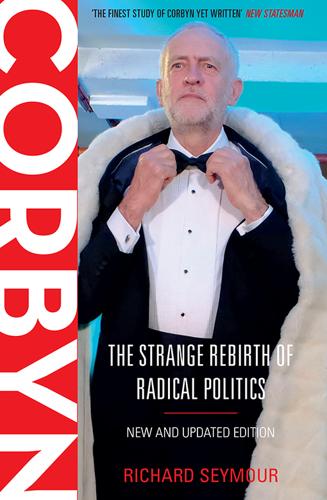
Corbyn
by Richard Seymour
Mast: Corbyn’s Subaltern Leadership 6.Prospects: Can Corbyn Win? Notes Acknowledgements This book was proposed, researched and written in a flush of enthusiasm after Jeremy Corbyn won the leadership of the Labour Party – a most unexpected occasion for a book. It couldn’t have been completed to my satisfaction without the
…
innocence. But having made the election into a ranking of personalities, inviting the electorate to choose between a ‘tough’ Theresa May leadership and a ‘weak’ Jeremy Corbyn leadership, May had set herself up for critical scrutiny of her personality, her presentation, and her competence. And she failed her own test. The Conservative
…
moral panic is a substitute for appropriate journalistic curiosity about complex new developments. Particularly striking is the complete lack of interest in learning anything about Jeremy Corbyn and his supporters, who have instead been demonised, condescended to as silly and dangerous fanatics uninterested in wielding real power, and subject to gossip
…
early meetings were extremely well attended, even if this fact was largely ignored by the media. As the media belatedly began to pick up on ‘Jeremy Corbyn mania’, with some bewilderment and alarm, high-profile Labour figures including Tony Blair began to make public statements, using their presumed moral authority to
…
leaderships of the larger trade unions, which were not helmed by radical Leftists and had no history of supporting left-wing Labour leadership candidates, back Jeremy Corbyn in this instance? With few exceptions, such as the union backing for Tony Benn’s deputy leadership campaign, the traditional stance of the trade
…
Corbyn’s supporters ‘seizing the means of production and distribution directly through strikes and organised demands’.35 The Daily Mail published a delirious fantasy about Jeremy Corbyn taking office and the first days of his administration, which began: ‘The night sky over London was thick with choking black smoke…’.36 Invoking
…
the Tony Blair–worshipping neoconservative pundit Stephen Pollard. In an article published a month before the outcome, the Chronicle posed a series of ‘key questions Jeremy Corbyn must answer’.38 Most of these were insinuation, guilt-by-association tactics. So, for example, it queried his links to Carlos Latuff, whom it
…
, leaving ‘a lot of good, loyal and decent people who read our newspaper feeling betrayed’.44 Symptomatically, the flood of disobliging column inches about Jeremy Corbyn in these newspapers was marked by constant harking back to the 1980s. As if nothing fundamental had changed that might bear thinking about. As if
…
had recently made headlines by falsely reporting an example of sexist exclusion at a mosque, authored a piece for the Telegraph which sneered: ‘Welcome to Jeremy Corbyn’s blokey Britain – where “brocialism” rules’.52 Newman’s complaint did not concern policy, on which Corbyn was difficult to attack, but representation. She
…
campaign was Corbyn’s supposed unelectability. A typical example of this was the Independent’s misleading story, originally accompanied by a false headline that read: ‘Jeremy Corbyn “loses a fifth of Labour voters”’.55 The substance of the story, carefully obscured within prevaricating formulations, showed something completely different. Sixty-three per cent
…
war movement was remarkable for the fact that, despite the prominence of seasoned Labour left-wingers such as Tony Benn, George Galloway and, of course, Jeremy Corbyn, its massed ranks drew as much from the affluent and professional suburbanites as from the metropolitan Left. Blair drew upon his immense reserves of contumely
…
pallid version of Corbyn’s policies. Dan Hodges foamed that Smith was running a ‘spineless, incoherent, incompetent campaign’ whose message was ‘I am just like Jeremy Corbyn … Ditch Jeremy Corbyn’: ‘Amazingly, this “Dump Corbyn, Get Corbyn” line isn’t resonating with the Corbynite true believers. For the simple reason that while many of them
…
mobilised and empowered grass roots. Electability: One More Push? Even in what is increasingly a post-democracy, elections matter. And in a normal political situation, Jeremy Corbyn shouldn’t be electable. The ‘common sense’ of the media and political class should prevail. Too bad for normality. Too bad for common sense. The
…
– also volunteered for a job on the front benches. The Telegraph complained, with some justice, that they were ‘crawling back to Corbyn’ after ‘benefiting from Jeremy Corbyn’s popularity’.34 Even Tony Blair eventually emerged to begrudgingly acknowledge that Corbyn had ‘tapped into something real and powerful’ and pay tribute to his
…
8 July 2013; John Harris, ‘Don’t let England be rebranded as a nation of bigots’, Guardian, 10 October 2016; Polly Toynbee, ‘Dismal, lifeless, spineless – Jeremy Corbyn let us down again’, Guardian, 25 June 2016; Andy Burnham, ‘Labour needs to take back control of the immigration debate’, Guardian, 16 December 2016. 4Anthony
…
this the revenge of the liberal metropolitan elite?’, Telegraph, 9 June 2017. 11Bart Cammaerts, Brooks DeCillia, João Magalhães, and César Jimenez-Martínez, ‘Journalistic representations of Jeremy Corbyn in the British press: from watchdog to attackdog’, Media@LSE report, London School of Economics, 1 July 2016; Dr Justin Schlosberg, ‘Should he stay or
…
in mortal danger’, Financial Times, 27 August 2015; Rowena Mason and Josh Halliday, ‘Gordon Brown urges Labour not to be party of protest by choosing Jeremy Corbyn’, Guardian, 17 August 2015. 3Robert Mendick, ‘Tony Blair gives Kazakhstan’s autocratic president tips on how to defend a massacre’, Telegraph, 24 August 2014.
…
Writings, London: Hutchinson, 2014, Kindle Loc. 621. 6Hilary Wainwright and Leo Panitch, ‘“What we’ve achieved so far”: an interview with Jeremy Corbyn’, Red Pepper, December 2015. 7Quoted in Nigel Cawthorne, Jeremy Corbyn: Leading from the Left, London: Endeavour Press Ltd, 2015, Kindle Loc. 180. 8Rosa Prince, Comrade Corbyn: A Very Unlikely Coup: How
…
in Tom Unterrainer, ed., Corbyn’s Campaign, Nottingham: Spokesman Books, 2016. 12Hilary Wainwright and Leo Panitch, ‘“What we’ve achieved so far”: an interview with Jeremy Corbyn’, Red Pepper, December 2015. 13Phil Burton-Cartledge, interview with the author, 19 February 2016. 14Hardeep Matharu, ‘Britain could be more left-wing than people assume
…
, study finds’, The Independent, 15 January 2016. 15Sam Webb, ‘Jeremy Corbyn gets hero’s welcome at refugee rally on day he becomes Labour leader’, Mirror, 12 September 2015. 16Larry Elliott, ‘OECD calls for less austerity and
…
February 2016. 1. How ‘Project Fear’ Failed 1Michael Crick, @michaelcrick, Twitter, 28 May 2015, twitter.com/michaellcrick/status/603845352727453696. 2‘Labour leadership latest odds: can Jeremy Corbyn really win?’, Week, 19 August 2015. 3Cruddas’s spin on the findings was reported by the Guardian’s resident Blairite, Patrick Wintour, with the following
…
. 15Interview with Marsha-Jane Thompson, 14 January 2016. 16Interview with Ben Sellers, 12 February 2016. 17Statistic quoted in Ben Sellers, ‘#JEZWEDID: From Red Labour to Jeremy Corbyn: A Tale from Social Media’, in Tom Unterrainer, ed., Corbyn’s Campaign, Nottingham: Spokesman Books, 2016. 18Interview with Jeremy Gilbert, 19 January 2016. 19Interview
…
with Ben Sellers, 12 February 2016. 20Kiran Moodley, ‘The video which shows why Jeremy Corbyn is winning in the Labour leadership race’, Independent, 23 July 2015. 21Magpie Corvid, ‘The Multitude of Fishes’, Salvage, 3 September 2015, salvage.zone. 22Interview with
…
Telegraph, 15 June 2015; Dan Hodges, ‘Sadiq Khan winning in London will be bad news for the Labour Party’, Telegraph, 19 January 2016. 30Andy McSmith, ‘Jeremy Corbyn is a stranger to responsibility and will loathe leadership’, Independent, 25 August 2015. 31Andrew Sparrow, ‘Miliband wins vote on Labour party reforms with overwhelming majority
…
2015; James Walsh and Frances Perraudin, ‘Labour leadership election: rejected supporters express their anger’, Guardian, 20 August 2015; Stephen Bush, ‘Is Labour purging supporters of Jeremy Corbyn?’, New Statesman, 20 August 2015; Oliver Wright and Matt Dathan, ‘#LabourPurge: Long-time supporters of party claim they have been barred from voting’, Independent, 20
…
‘With up to 100,000 now barred, Labour has become less a broad church and more a secret society’, Independent, 25 August 2015. 34Louise Ridley, ‘Jeremy Corbyn “Systematically” Attacked by British Press the Moment He Became Leader, Research Claims’, Huffington Post, 26 November 2015. 35Peter Dominiczak, Christopher Hope, Ben Riley-Smith and
…
Kate McCann, ‘Union bosses threaten to use Jeremy Corbyn’s victory to cripple UK’, Telegraph, 14 September 2015; Janet Daley, ‘The hard Left wants to seize power on the streets, not at Westminster’, Telegraph
…
40‘Raed Salah Mahajna -v- The Secretary of State for the Home Department’, Courts and Tribunals Judiciary, 10 April 2012, judiciary.gov.uk. 41Dan Hodges, ‘Jeremy Corbyn will be cheered by racists and terrorists’, Telegraph, 25 August 2015; Simon Walters, ‘Labour’s “Mayor” savages Corbyn: Party star Khan damns leader over anti
…
of fatalism, fury and fantasy’, Observer, 26 July 2015. 44Ed Vulliamy, ‘Why I take issue with the Observer’s stance on Jeremy Corbyn’, Observer, 20 September 2015. 45Andrew Sparrow, ‘Labour donor: Jeremy Corbyn win could cause SDP-style split’, Guardian, 24 July 2015. 46Polly Toynbee, ‘In Labour’s leadership race, Yvette Cooper is the
…
Guardian, 4 December 2015. 68Rowena Mason, ‘Corbyn urged to disband Momentum after Labour MPs report bullying and abuse’, Guardian, 3 December 2015. 69Tom Tugenhat MP, ‘Jeremy Corbyn is no pacifist – he wants to see Britain defeated’, Telegraph, 18 January 2016. 70Caroline Mortimer, ‘British Army “could stage mutiny under Corbyn”, says senior serving
…
. 79Mark Mardell, ‘Is “King Jeremy the Accidental” on the up?’, BBC News, 21 January 2016. 80Robin De Peyer, ‘Noel Gallagher launches scathing attack on Jeremy Corbyn’s Labour leadership’, Evening Standard, 10 January 2016. 81Peter Hyman, ‘This is an existential moment in Labour’s history. It may not survive. And it
…
Commons Liaison Committee. November 2005 35Polly Toynbee, ‘Every vote counts – to waste yours would be near-criminal’, Guardian, 7 May 2015; Iain Sinclair, ‘Polly Toynbee, Jeremy Corbyn and the limits of acceptable politics’, Open Democracy, 29 June 2015. 36In the Iowa primary, which was unexpectedly a near draw, Sanders defeated Clinton 6
…
anti-Semitic, but associating with the people he does is its own crime’, Independent, 4 September 2015; Rowena Mason, ‘Jewish Labour MP hits out at Jeremy Corbyn’s record on antisemitism’, Guardian, 14 August 2015. 8Tom Harris, ‘The Labour Party is increasingly anti-Semitic’, Telegraph, 14 March 2016; Camilla Turner, ‘Labour
…
anti-Semitism row threatens to divide the party’, Telegraph, 6 March 2016; Kate McCann, ‘Jeremy Corbyn must tackle anti-semitism within Labour or face “almighty row”, warns MP’, Telegraph, 13 March 2016; ‘IJV Statement on allegations of antisemitism in the Labour
…
Britain leaves EU, “In” campaign claims’, Telegraph, 12 October 2015. 13‘Corbyn launches Labour In for Britain campaign battlebus’, Telegraph, 10 May 2016. 14Rowena Mason, ‘Jeremy Corbyn “not on same side” as David Cameron in EU debate’, Guardian, 29 February 2016. 15Andrew Sparrow and Claire Phipps, ‘EU referendum live: Gordon Brown compares
…
War questioning’, Independent, 12 July 2016. 29Amanda Devil, ‘Vandals target Eagle’, Sun, 12 July 2016. 30Alexandra Sims, ‘Angela Eagle’s constituency branch issues statement supporting Jeremy Corbyn as Labour leader’, Independent, 6 July 2016. 31Anne Perkins, ‘Angela Eagle was never going to be Labour leader. You can guess why’, Guardian, 19 July
…
BFAWU; Chris Kitchen, general secretary, NUM, ‘Joint trade union statement on the Labour party’, 29 June 2016, at unitetheunion.org. 38Robert Fisk, ‘Bad luck Jezza: Jeremy Corbyn has 0% chance of winning majority in the next general election, electoral report says’, Sun, 9 August 2016; Robert Fisk, ‘“Not in my lifetime”: ex
…
than Cameron ever dared to be’, Independent, 18 May 2017. 56Robert Booth, ‘Conservatives launch online offensive against Corbyn’, Guardian, 15 May 2017. 57Nicholas Cecil, ‘How Jeremy Corbyn beat Theresa May in the social media election war’, Evening Standard, 14 June 2017. 58Jim Waterson and Tom Phillips, ‘People on Facebook only want to
…
of “big government” than at any time since the late 1970s.’ ‘British Social Attitudes 27th Report’, NatCen, December 2010, at natcen.ac.uk. 17James Schneider, ‘Jeremy Corbyn can lead the Labour Party back to power’, Prospect, 12 February 2016. 18Ipsos Mori, ‘Generations’, at ipsos-mori-generations.com; Andrew Grice, ‘Voters “brainwashed by
…
July 2015. 19Raymond Williams, ‘Culture is ordinary’, in Williams, Resources of Hope: Culture, Democracy, Socialism, London and New York: Verso, 1989. 20Freddie Sayers, ‘Bernie Sanders, Jeremy Corbyn and their new coalitions on the left’, Guardian, 15 February 2016. 21Monica Poletti, Tim Bale, and Paul Webb, ‘Explaining the pro-Corbyn surge in Labour
…
Waugh, ‘Momentum activists take control of local Labour parties ahead of Brighton conference’, Huffington Post, 20 June 2017; Emma Rees, ‘Grassroots create momentum to vote Jeremy Corbyn into office’, Financial Times, 22 July 2017; Emma Bean, ‘Corbynista slate pulls ahead in battle for key conference committees’, LabourList, 18 July 2017; Ashley Cowburn
…
, ‘Momentum: what happens to the Jeremy Corbyn-backing organisation after the general election?’, Independent, 7 June 2017. 27Luke Akehurst, ‘Competing visions’, Progress, 11 February 2017. 28Andrew Gilligan, ‘Revealed: the radical hard-
…
Momentum activists mounting a ruthless purge of Labour’, Telegraph, 13 February 2016; Rachel Shabi, ‘Opening Labour’, Jacobin, 16 July 2017. 29Glen O’Hara, ‘How is Jeremy Corbyn’s Labour faring in elections so far?’, New Statesman, 4 January 2016. 30Hardeep Matharu, ‘Britain could be more left-wing than people assume, study finds
…
review concludes’, Independent, 15 January 2016. 32‘Labour opinion poll ratings “worst since World War II”’, Herald, 19 January 2016. 33Glen O’Hara, ‘How is Jeremy Corbyn’s Labour faring in elections so far?’, New Statesman, 4 January 2016. 34Leon Watson, Helena Horton, and David Millward, ‘Crawling back to Corbyn: the Labour
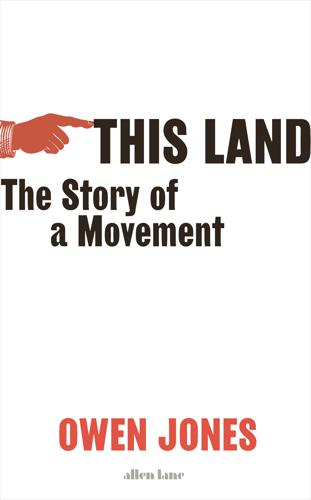
This Land: The Struggle for the Left
by Owen Jones · 23 Sep 2020 · 387pp · 123,237 words
beyond Britain’s borders too. It seems hard to believe now, but when, back in 2019 – in what seems another age – the Conservatives crushed Jeremy Corbyn’s Labour Party in a general election, stability of a sort appeared to beckon, albeit on terms millions resented. But as coronavirus triggered an unparalleled
…
of this period of political bedlam, Britain witnessed an audacious political revolution. On 3 June 2015, a scruffy, amiable Labour Party backbencher whose name – Jeremy Corbyn – was little known outside of left-wing circles, declared his intention to run for the party leadership. His initial odds of winning were rated at
…
sustained only by the deluded infatuation of an ideologically crazed political cult. Midwife to Brexit, morally disgraced by the evil of antisemitism, intolerant of dissent, Jeremy Corbyn offered a policy prospectus which was self-evidently too extreme and otherworldly for the sensibilities of the British public. This era – so the narrative goes
…
more isolated than ever, but he had one ally: a bearded Labour backbencher who carried his socialist principles with an air of dishevelled good humour. ‘Jeremy Corbyn is my best friend in Parliament,’ McDonnell would say (on one occasion I recall his wife, Cynthia Pinto, swiftly correcting him: ‘Your only friend!’).
…
were projected on to Parliament, and protesters dressed as witches and ghouls shut down Whitehall. Present among the speakers was the scruffy, passionate figure of Jeremy Corbyn.19 ‘Corbyn was very prominent in the anti-war movement,’ recalls Unite’s Andrew Murray. ‘It burst him out of the confines of being
…
future things would be a victory.’ Eventually, the quest for that candidate settled on the most unlikely of politicians. Gently spoken, unkempt, profoundly unconventional Jeremy Corbyn was detached from the usual run of party politics. After all, his main passions lay with championing the oppressed abroad, such as the Kurds and
…
to win; that was unthinkable. The next morning, I wrote the first pro-Corbyn column to appear in the mainstream media: a Guardian piece headlined ‘Jeremy Corbyn is in the Labour leadership race. The real debate starts here.’ Through social media, Labour supporters and members were encouraged to bombard MPs – politely –
…
that I was witnessing an unprecedented political phenomenon unfolding. ‘Hundreds and hundreds of people are queuing around the block in King’s Cross to see Jeremy Corbyn speak,’ I tweeted. ‘It is incredible.’ Speakers had to rotate around spillover rooms, and then address a large crowd which couldn’t make it
…
Corbyn and his team were equally, but ecstatically, bewildered. Months before, he could barely scrape together enough votes for his nomination. Now, against overwhelming odds, Jeremy Corbyn was leader of Britain’s Labour Party. The celebrations, though, were tinged with apprehension. Events chief Kat Fletcher had told her parents back in Sheffield
…
of the Labour Party before. What do we do now?”’ 3 ‘It’s Gonna Be Brutal’: The War Within Entering Parliament in September 2015, Jeremy Corbyn’s new leadership team literally crashed through the doors. In normal circumstances, a handover process from the outgoing team would be expected, but Corbyn’s
…
they walked. No leader of any major British political party has assumed office with odds so stacked against them while simultaneously being so unprepared as Jeremy Corbyn in September 2015. In normal times, here’s what happens. An aspiring leader is someone who has spent years, decades even, casting their sights
…
coverage that spanned Corbyn’s first few weeks as leader. Their findings, they wrote, illustrated ‘the ways in which the British press systematically delegitimised Jeremy Corbyn as a political leader’ through a ‘process of vilification that went beyond the normal limits of fair debate and disagreement in a democracy’. They found
…
a comic caricature, referred to repeatedly as the ‘Jezster’ or as ‘Mr Corbean’, a reference to the slapstick sitcom character Mr Bean; the Grinch (Jeremy Corbyn ‘cancels Christmas’ and ‘refuses to issue festive message’, declared the Daily Telegraph, four days after Corbyn had written a Christmas message for the Daily Mirror
…
, she clutched desperately for an answer, responding that it was ‘running through fields of wheat’. She deployed increasingly lame excuses for refusing to debate with Jeremy Corbyn, an encounter she seemed to fear. All of which turned her into a laughing stock. The leaders’ conflicting personalities, though, were only part of
…
at the Wirral Live music festival at Tranmere Rovers football ground. The 20,000 festival-goers there ‘went bananas’ and began chanting his name, ‘Oh, Jeremy Corbyn!’, to the tune of The White Stripes’ ‘Seven Nation Army’. Soon, it was being sung everywhere. The day before the election, Corbyn travelled to
…
about the Corbyn project. The leader himself seemed untouchable. Labour MPs who had attempted to depose him now enthusiastically joined in the chorus of ‘Oh, Jeremy Corbyn’. By contrast, Prime Minister Theresa May was, in the unsavoury words of former Chancellor George Osborne, a ‘dead woman walking’. A week after the
…
firebrand leader of the Greater London Council, Ken Livingstone, who even advocated adopting the euro.6 Like most of the British left at that point, Jeremy Corbyn had voted ‘No’ in the 1975 referendum and had consistently voted against legislation which granted more powers to the EU. But in truth, Corbyn
…
election, Corbyn had immense political capital. Labour MPs who had very recently been plotting to overthrow their leader were now serenading him with ‘Oh, Jeremy Corbyn!’; he even received an extremely irregular standing ovation from his MPs in the House of Commons. His approval ratings with the electorate had soared. The
…
by Tory Home Secretary Amber Rudd’s brother Roland, People’s Vote largely comprised an amalgamation of Labour MPs who were becoming increasingly hostile to Jeremy Corbyn, the Liberal Democrats and pro-EU Tory MPs like Anna Soubry. People’s Vote quickly amassed hundreds of thousands of emails, launched a parliamentary
…
a split between the Labour leadership and the largely pro-Remain Labour membership and voter base. ‘Some MPs thought it was a way to destabilize Jeremy Corbyn with the membership,’ says Gloria de Piero (who was herself no Corbynite, having voted against him in both leadership elections and resigned from the
…
overlapping political beliefs. ‘There was this narrative from the ultra-loyalist crowd of “this is a plot, you’re working with the right to undermine Jeremy Corbyn”,’ says Chessum, ‘and that was from every level of the Corbyn project.’ After the 2016 referendum, indeed, Labour depressingly abandoned a principled pro-migrant
…
underscoring that the middle ground had collapsed.28 With this polarization came vocal fury. Corbyn was despised by the radical wing of Remain: ‘Where’s Jeremy Corbyn?’ was chanted with abandon at People’s Vote rallies. Because Brexit day had been cancelled, Britain now had to participate in the upcoming European elections
…
. When Mear One posted an image of the graffiti on Facebook, decrying the mayor’s decision (it was, the artist protested, not antisemitic), then backbencher Jeremy Corbyn was tagged in. Corbyn got involved, on the artist’s side: ‘Why? You are in good company. Rockerfeller [sic] destroyed Diego Viera’s [sic]
…
back catalogue of comments would be scoured through by hungry journalists. Sure enough, in November 2015, the Jewish Chronicle published a piece headlined ‘Did Jeremy Corbyn back artist whose mural was condemned as antisemitic?’ Corbyn’s then head of media, Kevin Slocombe, did not respond to requests from the newspapers for
…
no way to prove otherwise because of that abiding and enduring suspicion’. Labour’s relationship with Britain’s Jews did not begin to disintegrate under Jeremy Corbyn, but under his predecessor, Ed Miliband. In the dying days of the Gordon Brown era, in 2009–10, Jewish voters were almost evenly split
…
, a week or so after Luciana Berger had drawn fresh attention to the Mear One mural controversy, the Sunday Times published an article headlined ‘Exposed: Jeremy Corbyn’s hate factory’. The piece presented various racist comments, including antisemitism, that had been posted on several Corbyn-supporting Facebook groups – groups, moreover, that
…
On the day, the delegates voted for a referendum, but rejected an outright embrace of Remain. Murphy watched with satisfaction as the chant of ‘Oh, Jeremy Corbyn!’ swept across the main hall. Yet during the whole process Corbyn himself had been withdrawn, almost invisible. Corbyn was unhappy; on that everyone agreed. The
…
with some trepidation. It’s 4 March 2020, and Britain is in the midst of an increasingly unsettling interlude: less than three months since Jeremy Corbyn’s Labour party suffered electoral obliteration at the hands of Boris Johnson’s Brexit populists, and less than three weeks before Johnson’s government, belatedly
…
Corbynism, in this view, was an aberration, a pointless tragedy, deserving only to be purged from political life. This narrative deserves to be robustly countered. Jeremy Corbyn won a landslide victory in two Labour Party leadership elections – elections that were, effectively, open primaries, because his opponents had nothing left to say. All
…
wp-content/uploads/2015/09/IRF-Refugee-Week-June-15-Report-Final-docx.pdf 11. https://www.theguardian.com/politics/2015/jun/15/labour-leftwinger-jeremy-corbyn-wins-place-on-ballot-for-leadership 12. https://www.thetimes.co.uk/article/social-media-could-blow-apart-labours-race-qhhz8360fx3 13. https://www.
…
destroy-the-Labour-Party.html 16. https://www.telegraph.co.uk/news/general-election-2015/politics-blog/11680016/Why-Tories-should-join-Labour-and-back-Jeremy-Corbyn.html 17. https://www.telegraph.co.uk/finance/economics/11776925/A-Corbyn-victory-in-the-Labour-leadership-battle-would-be-a-disaster.html 18.
…
diane-abbott-abuse-female-mps-trolling-racism-sexism-almost-half-total-amnesty-poll-a7931126.html 8. https://www.telegraph.co.uk/news/politics/labour/11764159/Jeremy-Corbyn-faces-coup-plot-if-he-wins-Labour-leadership.html 9. https://www.thetimes.co.uk/article/plot-to-oust-corbyn-on-day-one-2jk7cw8rrkn
…
confirms-a6959201.html 14. https://www.theguardian.com/society/2016/jan/23/poll-junior-doctors-support 15. https://www.telegraph.co.uk/news/politics/Jeremy_Corbyn/12021973/Jeremy-Corbyn-faces-humiliation-as-more-than-100-Labour-MPs-plan-to-defy-leader-over-Syria-air-strikes.html 16. https://www.independent.co.uk/news/uk
…
/politics/saudi-arabia-yemen-labour-mps-debate-bombing-intervention-woodcock-a7382706.html 17. https://www.telegraph.co.uk/news/2016/11/30/pmqs-jeremy-corbyn-takes-theresa-may-as-conservatives-edge-towards/ 18. https://yougov.co.uk/topics/politics/articles-reports/2016/06/30/labour-members-corbyn-post-brexit
…
19. https://www.huffingtonpost.co.uk/entry/jeremy-corbyn-parliamentary-labour-party-plp-meeting-told-to-quit-margaret-hodge-alan-johnson_uk_5771819ee4b08d2c5639bfc0 20. https://www.theguardian.com/commentisfree/2016/jun/29/labour-mps
…
-vs-corbyn-war-party-members-tories-brexit 21. https://www.independent.co.uk/news/uk/politics/thousands-of-jeremy-corbyn-supporters-march-on-parliament-against-labour-party-leadership-challenge-a7106511.html 22. https://twitter.com/aliceperryuk/status/753663563546451969 23. https://www.theguardian.com/politics/2016
…
com/politics/2018/apr/14/labour-and-tories-level-corbyn-popularity-wanes-poll 4. https://www.independent.co.uk/news/uk/politics/john-mcdonnell-defends-jeremy-corbyn-russia-response-nerve-agent-a8261946.html 5. https://www.theguardian.com/politics/2018/mar/11/labour-mps-should-not-appear-on-russia-today-says-
…
https://www.theguardian.com/media/greenslade/2017/jan/18/theresa-mays-brexit-speech-what-the-national-newspapers-say 7. https://medium.com/@OwenJones84/questions-all-jeremy-corbyn-supporters-need-to-answer-b3e82ace7ed3 8. https://www.theguardian.com/commentisfree/2017/mar/01/corbyn-staying-not-good-enough 9. https://www.telegraph.co.uk
…
/news/2017/02/09/clive-lewis-sounds-support-challenge-jeremy-corbyn-labour-leader/ 10. https://www.vice.com/en_uk/article/69w7np/glastonbury-dispatches-tom-watson-mp CHAPTER 5 1. http://www.mirror.co.uk
…
/news/politics/tories-open-up-24-point-10259681 2. http://www.politico.eu/article/jeremy-corbyn-less-popular-than-donald-trump-poll/?utm_content=bufferd8e5c&utm_medium=social&utm_source=twitter.com&utm_campaign=buffer 3. https://www.li.com/activities
…
14. https://www.ons.gov.uk/peoplepopulationandcommunity/personalandhouseholdfinances/incomeandwealth/bulletins/nowcastinghouseholdincomeintheuk/financialyearending2017 15. https://www.telegraph.co.uk/news/2017/05/11/labour-mps-reject-jeremy-corbyns-manifesto-theresa-may-warns/ 16. https://www.mirror.co.uk/news/politics/poll-shows-people-love-labours-10404216 17. https://www.telegraph.co.uk/news
…
.org/document/107332 6. http://news.bbc.co.uk/1/hi/uk_politics/1032999.stm 7. https://www.theguardian.com/politics/2015/jul/25/jeremy-corbyn-draws-fire-position-future-britain-eu-membership 8. https://www.theguardian.com/politics/2015/jul/11/david-cameron-employment-law-opt-out-eu-membership-renegotiation
…
/watson-mocks-lib-dem-brexit-deniers-and-vows-labour-will-not-disrespect-public-by-trying-to-overturn-eu-vote/ 27. https://labour.org.uk/press/jeremy-corbyn-brexit-speech-wakefield/ 28. https://www.telegraph.co.uk/politics/2019/04/08/exclusive-britons-split-middle-no-deal-no-brexit-telegraph-poll/ 29.
…
02/labour-councillor-suspended-after-calling-for-jews-in-israel-to/ 26. https://www.theguardian.com/commentisfree/2016/jun/30/labour-antisemitism-report-shami-chakrabarti-jeremy-corbyn 27. https://www.bod.org.uk/jonathan-arkush-reacts-to-report-by-shami-chakrabarti-inquiry-on-antisemitism/ 28. https://www.theguardian.com/politics/2019/mar
…
-says-antisemitism-allegations-are-made-up-1.480714 37. https://www.bod.org.uk/statement-following-board-of-deputies-and-jewish-leadership-council-meeting-with-jeremy-corbyn/ 38. https://www.holocaustremembrance.com/working-definition-antisemitism 39. https://www.independent.co.uk/news/world/middle-east/israel-jewish-nation-state-law-passed-
…
-deliver/ 42. https://cst.org.uk/public/data/file/5/0/NEC%20code%20of%20conduct%20Antisemitism.pdf 43. https://www.huffingtonpost.co.uk/entry/jeremy-corbyn-told-by-veteran-jewish-mp-youre-a-fucking-racist-and-anti-semite-margaret-hodge_uk_5b4e34cbe4b0fd5c73bfe020?dh 44. https://www.theguardian.com/politics/2018/jul
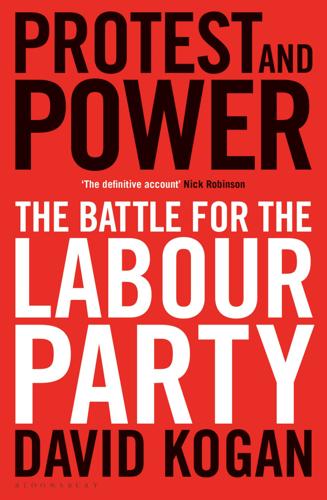
Protest and Power: The Battle for the Labour Party
by David Kogan · 17 Apr 2019 · 458pp · 136,405 words
such as Labour Against the Cuts, formed in 1975, and London Labour Briefing, launched in 1980, had brought together Ken Livingstone, Tony Banks and Jeremy Corbyn. In 1980, a centrist, Andrew McIntosh, beat Livingstone by one vote to the leadership of the Labour group on the GLC and in 1981 won
…
smart-suited, corporate style for both employees of the party and the companies they attracted. Clean-cut had replaced half-cut, although there were exceptions. Jeremy Corbyn regularly won beard of the year and, as events were to show, alcohol was not entirely absent from the House of Commons. Barbara Follett,
…
Tony Benn, Tariq Ali, Harold Pinter, George Galloway, and two figures who would work together from 2015 in the Labour leaders’ office: Andrew Murray and Jeremy Corbyn. The war with Iraq had galvanised a mass response. Marches held worldwide were estimated to have included as many as 30 million people. In London
…
obvious that Iraq did not have weapons of mass destruction. The war and its aftermath tarnished Blair’s reputation and moral authority. It also gave Jeremy Corbyn a greater profile and a sense of authenticity, which was to prove invaluable twelve years later. Iraq became a defining issue. Ed Miliband, who
…
leadership. There were six candidates for this position following the resignation of John Prescott. They were across the political divide with one possible left candidate. Jeremy Corbyn had announced that he might stand but ended up nominating Hilary Benn. The other candidates were Hazel Blears, Peter Hain and Alan Johnson, each
…
was about to happen. It interviewed two backbenchers on how they could, under a Labour minority government, have a much bigger sway over policy. Jeremy Corbyn and John McDonnell were quite open about using their Socialist Campaign Group of MPs (maybe thirty members after the new intake) to stop a minority
…
were twenty-five years younger than they. The battle from the backbenches would go on – or so they thought. part six The Four Summers of Jeremy Corbyn: The Summer of Love ‘Be not afraid of greatness. Some are born great, some achieve greatness, and others have greatness thrust upon them.’ Twelfth
…
across the politicians and there was Andy Burnham looking like a politician, Yvette Cooper looking like a politician, Liz Kendall looking like a politician and Jeremy Corbyn, like an ageing beatnik. . . . There was a question about austerity, is it more important to pay down the deficit than to put roofs over
…
young families. Cooper’s husband, Ed Balls, had lost his parliamentary seat, and this campaign was already months old; none of which applied to Jeremy Corbyn, who did not go on holiday. However, this did not prevent tactical discussions between them. Andy Burnham had gone to a waterpark in Mallorca with
…
Yvette Cooper of clinging on in the contest ‘out of pride’ as the two candidates fought publicly over who was best placed to defeat frontrunner Jeremy Corbyn. Michael Dugher, who is also the shadow transport secretary, added that Cooper’s team should stop talking up the possibility of her becoming leader,
…
The unions were large organisations who could flow in support but there was a skeletal structure for the new leadership. The first nine months of Jeremy Corbyn’s leadership demonstrated how fragile the left’s victory had been. The movement outside parliament created a new organisation that could have collapsed at any
…
to pull it together, and in late 2015 one presented itself. 26 Learning on the Job September 2015 was a remarkable series of firsts for Jeremy Corbyn. He was elected leader of the official opposition, his appointment to the Privy Council was announced (although not enacted until November), he had his
…
innovation and skills. This was to offset the lack of women in the nominal top jobs. In his first Labour party conference speech as leader, Jeremy Corbyn thanked everyone including his three rivals plus Ed Miliband, Harriet Harman and Iain McNicol, and announced a new style of politics: First and foremost, it
…
, after a year, it was repealed. These appointments were publicly attacked by MPs and the press alike. One headline in the Independent read, ‘So Jeremy Corbyn, what made you appoint Seumas Milne, an apologist for murderous dictators?’ However, as much of the problem was the impact they had on Corbyn himself
…
leadership without restraint. Labour’s involvement in the campaign was fronted by Alan Johnson and Hilary Benn, neither of whom were compelling or authoritative enough. Jeremy Corbyn was persuaded to take part on 14 April. His speech focused on workers’ rights and reform of the EU, he was not particularly concerned
…
potential leaders emerging. There was no collective endeavour, then it became this sort of individualist pursuit which all went horribly wrong. It all depended on Jeremy Corbyn resigning. It really did get to him. Jeremy didn’t enjoy the day-to-day parliamentary rigour of the role. What he really enjoyed
…
a job as shadow member for pensions. Long-Bailey decided to follow her political instincts from day one as the leadership contest happened and nominated Jeremy Corbyn. She was quickly spotted by John McDonnell and appointed to a junior job in the shadow treasury team and had a researcher called Olivia.
…
the Conservative party and on 13 July, the new prime minister. Meanwhile, two reports were published that had a big impact on Labour and Jeremy Corbyn. On 30 June it published Shami Chakrabarti’s report on antisemitism. The following week the government published the long-awaited Chilcot enquiry report on Iraq
…
not come back on Thursday.’ The NEC voted seventeen to fifteen to hold a secret ballot after some expressed fears of intimidation and online bullying. Jeremy Corbyn addressed the meeting but then agreed to withdraw. Now the real mess began and contradictory legal advice was taken. One barrister that said Corbyn
…
. On 8 November 2016, Donald Trump was elected President. 2016 was a contender for the year that killed both globalism and liberalism. It made Jeremy Corbyn’s election even more unusual but reflected the same underlying causes: anger at elites, social media as the engine of change supplanting traditional communication outlets
…
On 18 April she announced a general election for 8 June 2017. part eight The Four Summers of Jeremy Corbyn: The Summer of Fun ‘Ohhh, Jeremy Corbyn’ Glastonbury Crowd, 2017 30 The Apotheosis; The 2017 General Election Jeremy Corbyn had won every fight since 2015. The introduction of OMOV, the impact of social media and the
…
would be capped at £35,000. The Conservative manifesto had ignored this with a much more radical plan. He slammed their proposals, as did Jeremy Corbyn, who immediately dubbed it ‘a dementia tax’. Another further sign that the Conservatives were assuming a landslide victory and as a sop to her backbenches
…
rebound. From the euphoria of winning the leadership, beating off the 2016 attempt to remove him and the surprise of the 2017 general election, Jeremy Corbyn and his supporters could afford to focus on solidifying their position within the party and prepare their appeal to the wider electorate. With Brexit occupying
…
established the principle of tax and spend, there was no need to triangulate to lower taxes as New Labour and even Ed Miliband had done. Jeremy Corbyn, John McDonnell and the shadow cabinet could unashamedly declare they would tax more to spend more. However, despite this, the two major parties remained
…
policy and everything to do with issues of his particular past, as well as those of his closest advisors. The issues that were to dog Jeremy Corbyn were rooted in his previous focus on international affairs. His views on Palestine, Israel and Zionism were to crystallise into accusations of antisemitism in
…
Palestinian problem except by Jihad.’ During the various rallies that month, representatives of Hamas and Hezbollah were invited to the House of Commons by Jeremy Corbyn and described as friends. This action in 2009 was entirely in keeping with his record as a backbench MP of appearing with people and on
…
his knowledge. This would become a favoured line of defence. After he became front runner in the Labour leadership race the first public clash between Jeremy Corbyn and the Jewish community came in August 2015 from the Jewish press – The Jewish Chronicle and Jewish News. The JC was edited by Stephen
…
Pollard whose politics could not be more different from those of Jeremy Corbyn. On 12 August 2015, Pollard fired the first shots in this war by publishing a list of questions concerning Corbyn’s past associations with accused
…
house for Jews. At the very least this article could be taken as a clarion call – Freedland was no right-wing supporter of Israel. Jeremy Corbyn’s reaction was captured on camera by the Vice television crew that had been following him. He described the article as ‘utterly disgusting subliminal nastiness
…
in the street. The NEC decided to suspend rather than expel Livingstone. He refused to apologise and, when asked about this incident on camera, Jeremy Corbyn icily refused to answer whether he condemned the remarks. Instead, Labour set up an enquiry into antisemitism to be conducted by well-known barrister and
…
of a number of Jewish anti-Zionist leftists who were to become increasingly vocal in defence of Corbyn. For the rest of that summer, Jeremy Corbyn was engaged in fighting the second leadership election where the battle lines between the left and its opponents became even more divisive. By September,
…
banners displayed are very offensive to British Jewish people. The report then moved on to events after the Chakrabarti report and Ruth Smeeth’s walkout. Jeremy Corbyn had not made any contact with Ruth Smeeth since the incident ‘which is itself a catastrophic failure of leadership’, and shockingly: Since that event,
…
attended the Labour party conference with a security detail, after press reports that she had received an antisemitic death threat online. It stated that Jeremy Corbyn was asked about his and Seumas Milne’s past associations. In the face of questioning about his relationships with a number of individuals associated with
…
the government of the day and leading opposition parties would normally agree to condemn an attack on British citizens and mutually condemn the perpetrators. Instead, Jeremy Corbyn opened by condemning the attack but asking for a ‘robust dialogue’ with Russia and then associated the attack with Russian oligarchs living in London
…
following the poisoning, both Emily Thornberry and John McDonnell accepting the case against it. If that wasn’t enough to undermine the public perception of Jeremy Corbyn, the same month the accusation of antisemitism raised its head again. In 2012, a decision had been made by Tower Hamlets council in London’
…
she wanted public support. This was greeted by a standing ovation from everyone except the frontbench who sat stony-faced. In a later interview, Jeremy Corbyn condemned the abuse that was being hurled at Labour MPs at the demonstration and rejected the argument that it had been about smearing him, but
…
letter demanding she should leave the NEC itself. She was replaced as chair by Claudia Webbe, an Islington councillor and ally of Ken Livingstone and Jeremy Corbyn. The division was now clear. The extreme levels of abuse overwhelmed any discussion about the rights or wrongs of the Palestine issue. Within the
…
. John McDonnell was beginning to publicly move away from LOTO by engaging on the issue. The Times reported on 31 July that he met Jeremy Corbyn to suggest dropping the fight with Margaret Hodge. Other shadow cabinet members and leaders of the left were highly uncomfortable about the problem. Andrew
…
On 10 August, the Daily Mail revisited the story printed in the Sunday Times during the 2017 general election and published pictures from 2014 of Jeremy Corbyn at the Hammam al Chatt cemetery in Tunis. He had been attending a conference hosted by the Palestine National Authority which, while it had representatives
…
because they denied the existence of the problem. There was clearly a problem of perception in the Jewish community. The issue of antisemitism had dominated Jeremy Corbyn’s fourth summer. Now, the party conference of 2018 would seek to redress the political balance back towards Labour’s policies, internal fights over
…
2016 referendum campaign showed the new leadership’s reluctance to campaign in support of Remain alongside David Cameron and their Blairite opponents within the party. Jeremy Corbyn, Seumas Milne and some of the members of the shadow cabinet such as Jon Trickett, who were old enough to have supported the left’
…
campaign, and we ended up being based in Momentum’s offices, and the Green party. When the referendum was lost and the result accepted by Jeremy Corbyn, attention moved away from Brexit to the chicken coup and second leadership election. Within Momentum, Jon Lansman’s successful launch of a new constitution
…
the Labour party that had to be bailed out by Unite when it failed to sell enough tickets. For the first time since his election, Jeremy Corbyn saw internal opposition from the left with banners and stickers proclaiming ‘Bollocks to Brexit’ and ‘Love Corbyn Hate Brexit’. Best for Britain was now
…
Corbyn published in Labour List they stated his answers were ‘not aligned with party policy’ and did not show commitment ‘to party democracy’. Although Jeremy Corbyn condemned the WA, when would he move to the next step, a motion of no confidence that might trigger a possible general election? In advance
…
three title winners were Atlee in 1945, still revered; Wilson in 1964, almost forgotten; Blair in 1997, now rejected. It seemed in 2018 that Jeremy Corbyn would never have a better chance to emulate them and win power from a sitting Conservative government. This book has chronicled the dramatic sweeps, changes
…
‘Blairites’, ‘Tories’, ‘Zionists’ and ‘Traitors’ the degree of attack is as hard. Len McCluskey’s repeated attacks on anyone who disagrees with LOTO and Jeremy Corbyn are designed to force people out; not keep them in. The danger of Brexit is that two entirely different groups could be alienated. The centrists
…
years. The GLC leadership in 1982 with a stylish John McDonnell. The counter-revolution, Glenys and Neil Kinnock with Peter Mandelson. A very fringe meeting, Jeremy Corbyn and Tony Benn. New Labour heading for victory with, from left to right, Ed Balls, Peter Mandelson, Alastair Campbell, Tony Blair and Gordon Brown.
…
at the National Policy Forum 2014. Where are the meerkats? Harriet Harman with Ayesha Hazarika during the 2015 leadership election. A kinder form of politics? Jeremy Corbyn singing ‘The Red Flag’ at 2015 Labour party conference; Iain McNicol on his far right. Glastonbury 2017. The rise of the movement; Momentum. The
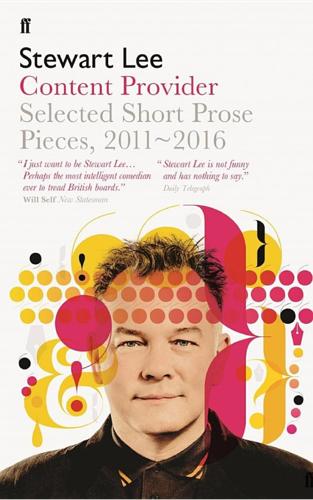
Content Provider: Selected Short Prose Pieces, 2011–2016
by Stewart Lee · 1 Aug 2016 · 282pp · 89,266 words
my holiday to change history Can we be absolutely certain Iain Duncan Smith is real? Time to embrace the horrors of your Spotify playlist data Jeremy Corbyn and I are the new Christs It’s not easy getting laughs out of the migrant crisis Jezza the jester? He’s here to satirise
…
next? Gay men on TV? Transgender Olympians?” Alexander Simon “Champagne socialism comes in many vintages.” IvorD Jeremy Corbyn and I are the new Christs Observer, 6 September 2015 Apparently, the Labour Party leadership contest frontrunner, Jeremy Corbyn, wants to dredge the decomposing corpse of Osama bin Laden from the seabed and then marry it
…
tea, I looked out of the window to see Tim Farron of the Liberal Democrats fly by in a hang glider, with a picture of Jeremy Corbyn kissing Bin Laden printed on its outstretched wings. Farron’s pained democratic face suggested either constipation, sexualised religious ecstasy, the vain hope that someone would
…
bananas. It’s so difficult to tell since the creature no longer has Alastair Campbell to interpret for him. “We don’t do bananas.” Like Jeremy Corbyn, I too have experienced the agony of decontextualisation. A DVD of a 2009 stand-up routine, in which I used depictions of violence against TV
…
clear that my patented Jan Moir trap, baited with the stinking cheese of assumed outrage, had worked like a dream. But apart from me and Jeremy Corbyn, there was another man, wasn’t there, long long ago, whose wise words were often shorn of context by stupid fools and used against him
…
shirts like Tony Blair? No, he would have dressed like me, in an XXL T-shirt he got free from an indie band; or like Jeremy Corbyn, in a pair of itchy alpaca wool underpants knitted for him by his mother as a gesture of solidarity with the Sandinistas. And with all
…
of this column. Nobody on Twitter or “Comment Is Free” reads to the end of the pieces they are complaining about. And a headline like “Jeremy Corbyn and I Are the New Christs” will only serve to convince the Conservative content-provider Tim Montgomerie that Guardian newspapers have finally lost the plot
…
into a tail-chasing tailspin of baronic confusion. What’s the point? But in such moments of despair I think to myself, WWJCD? What would Jeremy Corbyn do? And the sadness just fades away. * * * “‘The ‘new Christs’ bit is in bad taste and the author knows it. Why does he think he
…
supposed over-reliance on cultural comparisons drawn from the world of the Native American shaman clown. And yet, in the light of the ascension of Jeremy Corbyn, I find myself taking familiar soundings once more from the sacred miracle caves of the south-western mesas. But our story starts in north London
…
the pay of a vast property-owning multinational corporation. Now, none of the above stories is true. But I feel what they tell us about Jeremy Corbyn is true. Post-digital, tech-savvy and able to google the sources of Corbyn’s supposed comments, the vibrant young people on our capital’s
…
comments made no sense to me at all. What I would say, though, is that it is precisely those things that the media ridicule about Jeremy Corbyn that made me vote for him as leader. Just as an example, the fact that he doesn’t dress like a city whizz-kid all
…
was the first time she had worn the gown. Instead of wearing a booby-trapped papier mâché head of the Dalai Lama, as was feared, Jeremy Corbyn wore a black jacket, white tie, white shirt, black shoes and black trousers, with black socks and white pants from Marks and Spencer’s. It
…
the Queen – elected to lick it. From where I was sitting I saw the Queen’s eyes, as she licked the massive Chinese arse, meeting Jeremy Corbyn’s eyes. It seemed to me they shared an intimate moment, as she communicated to him the terrible bondage of duty, perhaps envying the rebellious
…
firstborn son, their uncompromised freedom, perhaps asking for understanding. And I like to think that it was in solidarity with the quietly dignified Queen that Jeremy Corbyn too then leaned forward to lick the massive Chinese arse himself. The arse-licking and arse-kissing done, the band struck up the James Bond
…
or something! !!!!” Alice38 Sun slams Corbyn’s nod and gets a rise out of me Observer, 15 November 2015 Last week’s newspaper attacks on Jeremy Corbyn have moved from the dishonest into the deranged. On page seven of Monday’s Telegraph, Sir Gerald Howarth MP, who once worried that the same
…
for white children.’ Stewart Lee, 2016.” Vladdaman Osborne’s tax deals are the stuff of spaghetti westerns Observer, 31 January 2016 Challenged, quite effectively, by Jeremy Corbyn in that week’s PMQs over his government’s cosy deal with tax-dodging Google, David Cameron, desperate to land a blow, said, irrelevantly, of

Posh Boys: How English Public Schools Ruin Britain
by Robert Verkaik · 14 Apr 2018 · 419pp · 119,476 words
of Oxford’s brightest scholars were drawn from its ranks. Today Winchester College continues in this tradition of enrolling bright and influential students. Two of Jeremy Corbyn’s closest advisers, Seumas Milne and James Schneider, are Wykehamists who went on to Oxford. The success at Winchester spurred on other medieval philanthropists. Education
…
, a public school in Hertfordshire (and alma mater of Rudyard Kipling, Group Captain Peter Townsend, Quentin Letts, Stephen Mangan, Dom Joly and key aide to Jeremy Corbyn, Barry Gardiner MP. It was while working at Haileybury House, a charity run by his old school to help East End children, that he underwent
…
Tory agenda the great surprise was that Labour, offering up its most radical left-wing manifesto in decades, devoted just half a sentence to it – Jeremy Corbyn would charge VAT on private school fees.35 The Tory manifesto, meanwhile, read like something penned by Michael Foot. It began: ‘The greatest injustice in
…
canny privately educated strategist. It begs the question: who was wresting control, and from whom? 12 FOR THE FEW, NOT THE MANY The rise of Jeremy Corbyn and his brand of left-wing politics has confounded political wisdom, defeated moderate opposition within the Labour Party and dealt a serious blow to the
…
money at his private education present a discordant picture of a man who claims to represent ordinary voters. In fact, there is nothing ordinary about Jeremy Corbyn’s upbringing. His parents David and Naomi met in the 1930s at a meeting in London for supporters of Spain’s Republicans in the fight
…
underside of the table.’ Another former pupil says boys were flogged for as minor an offence as ‘having your cap at a rakish angle’.5 Jeremy Corbyn, the youngest of the four brothers, joined Clive House, named after Clive of India, and quickly established himself as a rebel, campaigning against nuclear weapons
…
a mock election in which Corbyn stood as the Labour candidate. His brother Piers, now a well-known weather forecaster, represented the Communist Party.6 Jeremy Corbyn’s friend and campaign manager Bob Mallett remembered: ‘At a middle-class boarding grammar school in leafy Shropshire, there weren’t many socialists. We were
…
one of the country’s youngest local politicians. Apart from a profile of his ‘posh provenance’ in Tatler, very little has been made of how Jeremy Corbyn’s education shaped his political career, gathering around him the tactical nous and expertise of a number of public school-educated party strategists. Corbyn’s
…
. Since Tony Benn’s campaign, lessons have been learned which have been put to good use in the service of the new hard-left pretender, Jeremy Corbyn. Crucial to the Benn campaign was a group Lansman helped run, the Rank and File Mobilising Committee. Its tactics were unprecedented: sending senior left-wing
…
above a report on a clay pigeon shooting event: ‘JGH Schneider (F, 00–05), the National Organiser of Momentum, is joining the Labour Party Leader Jeremy Corbyn’s office in a strategic communications role, where he will be working alongside SPC Milne (Coll, 71–74).’ SPC Milne is better known as Seamus
…
no longer be an option. 17 THE ENTITLEMENT COMPLEX Is there such a thing as a public school personality which encapsulates both Boris Johnson and Jeremy Corbyn? Or one which links Philip Green to Richard Branson? What about Nigel Farage and Tony Benn? On the face of it these high achievers would
…
in, which, in turn, is beginning to breed resentment and grievance. This has already led to the protest movements that have seen the rise of Jeremy Corbyn and Momentum, and brought us Brexit and Donald Trump. But these are merely the symptoms of a much deeper malaise. Conclusion THE DISSOLUTION OF THE
…
not by the interests of the privileged few, but by yours.’3 And so the ‘big society’ became the ‘shared society’. Then, in August 2017, Jeremy Corbyn took to the pyramid stage at Glastonbury to urge us to build a society ‘for the many not the few’, which would ‘mean sharing the
…
case for abolishing public schools were solely a hard-left enterprise as Barnaby Lenon suggests, wouldn’t you expect to hear more about it from Jeremy Corbyn? The public school problem is not confined to these shores. Private education has become an engine of inequality all over the world. From the new
…
’s Political Class (London: William Collins, 2017), p. 610. 12 For the Few, Not the Many 1 http://www.telegraph.co.uk/news/politics/Jeremy_Corbyn/11818744/Jeremy-Corbyn-the-boy-to-the-manor-born.html 2 http://www.castlehouseschool.co.uk/about-the-school/fees/ 3 Rosa Prince, Comrade Corbyn: A Very Unlikely
…
https://www.stjos.co.uk/senior/prospectus/senior-prospectus-pdf/ 11 @johnmcdonnellMP, Twitter, 7 June 2017. 12 https://www.theguardian.com/politics/2015/aug/15/jeremy-corbyn-world-supporters-mentors-influences 13 http://www.peoplesmomentum.com/about 14 Michael Wilkinson, Daily Telegraph, 8 March 2016. 15 https://www.linkedin.com/in/laura
…
-on-the-big-society 3 https://www.gov.uk/government/speeches/statement-from-the-new-prime-minister-theresa-may 4 http://www.nme.com/festivals/jeremy-corbyn-glastonbury-2017-speech-full-2093107#YpxzkTZV5LV6UhQ0.99 5 Matthew Parris, The Times, 9 June 2012. 6 James Kirkup, Daily Telegraph, 7 October 2015. 7 http
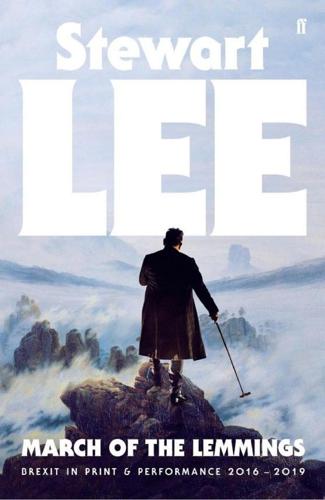
March of the Lemmings: Brexit in Print and Performance 2016–2019
by Stewart Lee · 2 Sep 2019 · 382pp · 117,536 words
, is acceptable, if it is delivered with the rhetorical flourishes and classical allusions of the public-school debating society. Hence, Cameron can scornfully sneer at Jeremy Corbyn and describe Dennis Skinner as a dinosaur, yet the venerable beast himself is dismissed from the house when he calls Cameron merely ‘dodgy’. The problem
…
General Dreedle is real or not, the fact is Putin’s Russia has taken political propaganda to the next level, motherfuckers! Meanwhile, here at home, Jeremy Corbyn is filmed sitting on the floor of a train. There is a long tradition of essentially dishonest photo opportunities being used by politicians to cement
…
gone to any lengths to avoid David Cameron being photographed embracing an animal. But instead of being photographed in a tank like a normal politician, Jeremy Corbyn last week chose to be filmed sitting on the floor of a train. While clearly intended to highlight the scandal of private rail company ownership
…
on Theresa May, it had been a bit much.5 Suzanne Evans from the Ukips was wearing a giant Remembrance Day poppy made of cloth. Jeremy Corbyn came on TV wearing a tiny badge of a poppy. I said, ‘Your poppy’s massive, isn’t it, Suzanne
…
? Jeremy Corbyn’s is tiny. He’s a traitor, isn’t he?’ Suzanne Evans from the Ukips didn’t say much, and I worried that she had
…
a second time later in this book. Look out for it! ‘Oh, Jeremy Clarkson.’ Is that any better as a Glastonbury chant? 2 July 2017 Jeremy Corbyn appeared at the Glastonbury CND festival, as part of an ongoing comeback more surprising than Dylan’s 1997 Time Out of Mind turnaround. Like Dylan
…
with thousands of different acts over hundreds of different stages. They come with some bread. And the tip doesn’t go to Greenpeace. This year, Jeremy Corbyn’s logical appearance at the Glastonbury CND festival seems to have reminded people that ’60s and ’70s festivals emerged from an actual un-co-opted
…
’m not alone. So disgusted are youth voters by the repellent newspaper, it’s now clear that the Daily Mail’s increasingly hysterical attacks on Jeremy Corbyn, the coddled egg of British politics,6 may even have helped secure his triumphant loss in the last general election. I find that a damning
…
they ever come for me, I know where the bodies are buried, and who buried them. 6 I had never heard of coddled eggs until Jeremy Corbyn said he liked to eat them, when he was a guest on a 2017 edition of Celebrity Gogglebox. I googled ‘coddled eggs’, liked the sound
…
in boiling water, and now coddled eggs are one of the family’s favourite breakfast treats. And all thanks to Marxist firebrand and terrorist sympathiser Jeremy Corbyn, who should perhaps think about fronting his own coddled egg-based reality TV show, Celebrity Coddlebox! 7 I don’t think the bad-sex novelist
…
the bendy bananas, which had not been taken off them anyway, must surely now be wondering, privately, if it was all worth it. Last Monday, Jeremy Corbyn reluctantly declared his own ‘bespoke customs union’ Brexit fudge, with all the enthusiasm and conviction of a man held at gunpoint saying how well he
…
obviously be a Remainer, but if the result of the corrupt referendum must be honoured, the Lord would at least favour a soft Brexit. Like Jeremy Corbyn, Jesus Christ would be a hard Brexiteer, but only because he imagined a fairer society could be built from the ruins of the old one
…
peg to hang this flimsy piece on. Was it Disaster Capitalists, like Arron Banks, planning to profiteer from the chaos? Was it Disaster Socialists, like Jeremy Corbyn, hoping to home-bake a better Britain from the wreckage in his Islington patisserie? Was it Disaster Racists, like my relative who voted Leave to
…
of the principal political parties in the United Kingdom in the short term. Not the death of all life on Earth. On Monday night, tiny Jeremy Corbyn shifted his two buttocks slightly on his north London fence, the kitten weight of his coddled egg-nourished frame pivoting slightly towards the possibility of
…
more, for whom such a line would get an unintended, and unironic, cheer. 35 Weirdly, about three hours before writing this note, I walked past Jeremy Corbyn on the Seven Sisters Road, as I came back from trampolining at the Barry Sobell Sports Centre with my kids. Corbyn did look like Catweazle
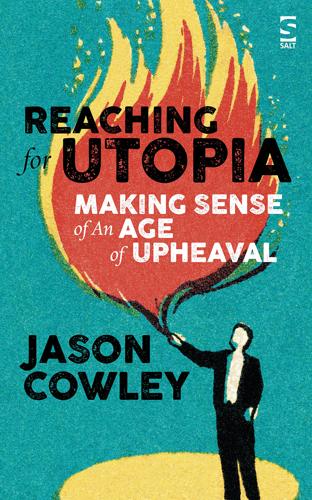
Reaching for Utopia: Making Sense of an Age of Upheaval
by Jason Cowley · 15 Nov 2018 · 283pp · 87,166 words
major political players shaping and changing the way we live today. The book features fascinating, wide-ranging explorations of Tony Blair, Gordon Brown, Ed Miliband, Jeremy Corbyn, Alex Salmond, Nigel Farage, David Cameron, George Osborne and Theresa May. Cowley is unusual in having access to party leaders and prime ministers on both
…
a century – through two world wars – and yet by any measure the present era is remarkable: Trump, Brexit, the Scottish independence referendum, the election of Jeremy Corbyn as Labour leader and the rise of the radical left, the crises in Europe, the rise and fall of Islamic State, a mini world war
…
were neither deep nor strong. Under pressure and in adversity, it began to crumble and then, after the 2015 election defeat, it collapsed, and now Jeremy Corbyn and his followers are roaming through the ruins, creating a new party of anti-austerity radicals. * * * I’m not sure quite what divided the Blairites
…
none of the Golden Generation doubted that the left had been vanquished inside Labour and beyond it. The parliamentary Bennites in the Socialist Campaign Group – Jeremy Corbyn, John McDonnell, Diane Abbott and the rest – were considered cranks. They offered no threat. They should not be respected. Moreover, the Conservatives were in retreat
…
’s second run for the leadership in 2015, when, despite being the early front-runner and favourite, he was defeated by the 100–1 outsider, Jeremy Corbyn, was a sad failure. He posed as the anti-Westminster candidate, the People’s Andy, the boy who would burst what he called the ‘Westminster
…
seized their chance when events forced Ed Miliband to revise the rules by which the Labour Party elected its leader. The party is theirs now. Jeremy Corbyn is their leader. * * * Ed Miliband and I have not spoken since he lost the 2015 election, but it’s clear to me that defeat has
…
Blair was ‘positioning himself to play a pivotal role in shaping Britain’s Brexit deal’. He was also alleged by unnamed sources to have called Jeremy Corbyn a ‘nutter’ and Theresa May a ‘lightweight’. The report irritated his aides and Blair alluded to it several times during our conversation, as if eager
…
to celebrate. There is absolutely no reason to be pessimistic about the human condition.’ (2016) The Time of the Rebel: Jeremy Corbyn One day in June 2016, as the ‘coup’ to oust Jeremy Corbyn gathered momentum in the immediate aftermath of the vote for Brexit, Owen Smith visited the Labour leader in his office
…
to me. ‘He has to understand that he’s the establishment now. Win or lose he must take responsibility.’ * * * How does it feel to be Jeremy Corbyn? How does it feel to be adored by activists and members but traduced by your MPs, reviled by the ‘mainstream media’, while presiding over catastrophic
…
I call myself a socialist, that’s because I am a socialist.’ Then he checked the English football results on his iPad. * * * How serious is Jeremy Corbyn? Is he for real? This is what one Czech journalist asked me after meeting him. Because of their history of occupation and communist oppression, the
…
incarnation of human stupidity and yet also with something of the divine about it.’ For his supporters and detractors, it is something like this with Jeremy Corbyn, who can seem guileless in his self-deprecating affability and unworldliness, even innocent, as he repeats his stock phrases, chats about his allotment and preaches
…
very strongly Irish. And I always firmly believed that the only way you would ever bring about peace in Ireland is by talking to people.’ * * * Jeremy Corbyn is a smarter and more adept media performer than he is given credit for. He’s good at deadpanning television interviewers and at deflecting questions
…
hundreds of thousands of new paying members, it would have the funds to contest it well; the party would exploit its social media expertise; and Jeremy Corbyn would campaign as a Bernie Sanders or Donald Trump-style anti-establishment populist. He said Corbyn and the party would confound expectations. I remember thinking
…
party will have a long wait. A realignment has taken place and the left are in control. Once dismissed as a perennial protester and irrelevance, Jeremy Corbyn now sincerely aims to become prime minister. Should he succeed, a major European country will be governed from the socialist left for the first time
…
fundamental to understanding her style. If May succeeds in creating a new political economy combining greater social mobility with enhanced social justice, she will condemn Jeremy Corbyn’s party to electoral defeat, because, as she told me several times, she intends directly to appeal to disillusioned Labour voters. The Tories won Copeland
…
: Nigel Farage What does Nigel Farage know? What does any successful politician know? What did Tony Blair know that Ed Miliband did not? What does Jeremy Corbyn know that his detractors in the Parliamentary Labour Party do not? In 2009, Michael Ignatieff, a cosmopolitan intellectual and former Harvard professor, became the unlikely
…
in what they say and how they approach things. So, I use direct language, never trying to come across as being too clever.’ Farage respects Jeremy Corbyn because he is not a conventional career politician. ‘Corbyn’s a bit different, and maybe that’s why he’s working with a certain segment
…
, when it comes to playing strategic global politics, is a bloomin’ sight smarter than No 10.’ * * * Before UKIP’s post-referendum collapse into irrelevance and Jeremy Corbyn’s dramatic rise, Farage successfully reached out to and captured a certain demographic of Labour voters, several million of whom ended up voting for Brexit
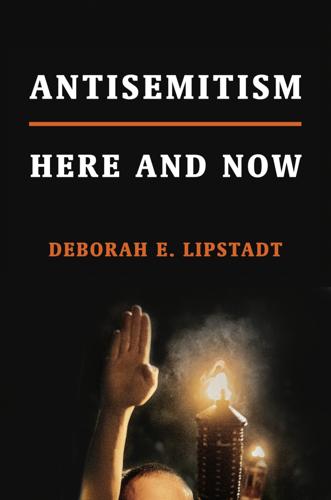
Antisemitism: Here and Now
by Deborah E. Lipstadt · 29 Jan 2019 · 276pp · 71,950 words
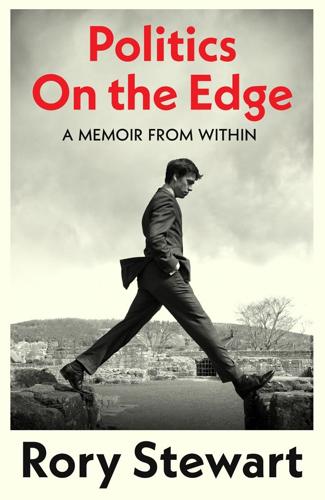
Politics on the Edge: The Instant #1 Sunday Times Bestseller From the Host of Hit Podcast the Rest Is Politics
by Rory Stewart · 13 Sep 2023 · 534pp · 157,700 words
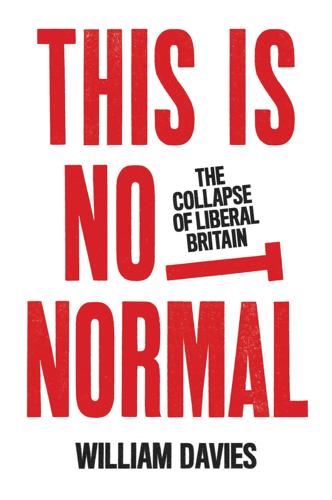
This Is Not Normal: The Collapse of Liberal Britain
by William Davies · 28 Sep 2020 · 210pp · 65,833 words
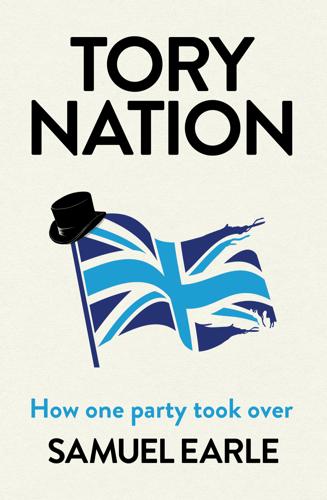
Tory Nation: The Dark Legacy of the World's Most Successful Political Party
by Samuel Earle · 3 May 2023 · 245pp · 88,158 words
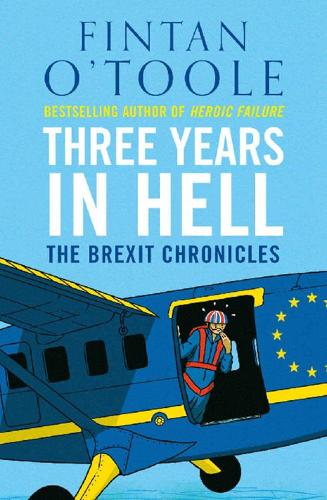
Three Years in Hell: The Brexit Chronicles
by Fintan O'Toole · 5 Mar 2020 · 385pp · 121,550 words
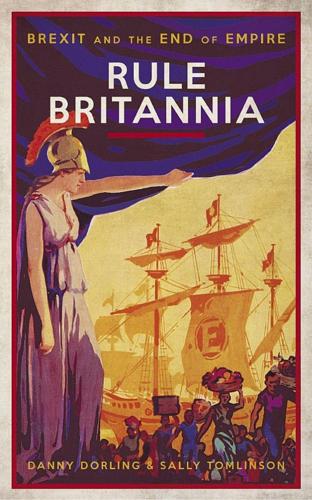
Rule Britannia: Brexit and the End of Empire
by Danny Dorling and Sally Tomlinson · 15 Jan 2019 · 502pp · 128,126 words
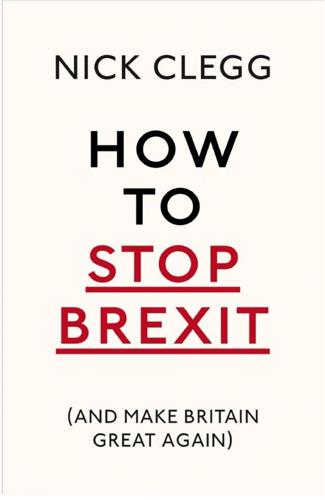
How to Stop Brexit (And Make Britain Great Again)
by Nick Clegg · 11 Oct 2017 · 93pp · 30,572 words

Planes, Trains and Toilet Doors: 50 Places That Changed British Politics
by Matt Chorley · 8 Feb 2024 · 254pp · 75,897 words
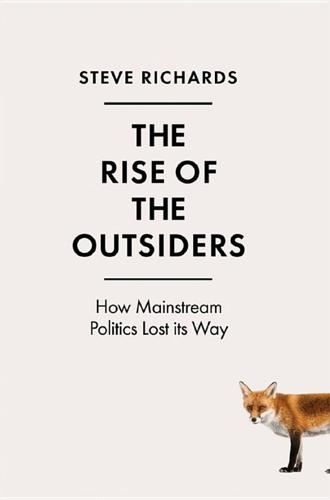
The Rise of the Outsiders: How Mainstream Politics Lost Its Way
by Steve Richards · 14 Jun 2017 · 323pp · 95,492 words

The Powerful and the Damned: Private Diaries in Turbulent Times
by Lionel Barber · 5 Nov 2020
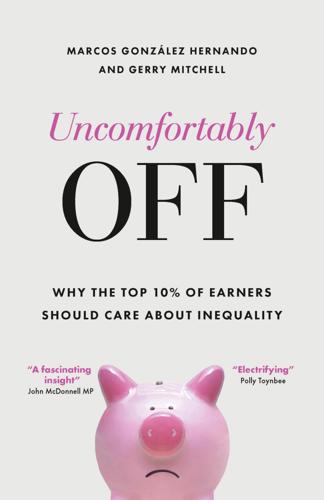
Uncomfortably Off: Why the Top 10% of Earners Should Care About Inequality
by Marcos González Hernando and Gerry Mitchell · 23 May 2023
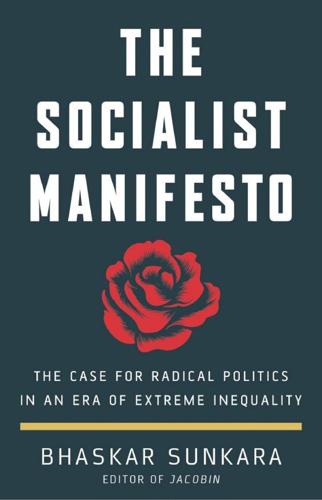
The Socialist Manifesto: The Case for Radical Politics in an Era of Extreme Inequality
by Bhaskar Sunkara · 1 Feb 2019 · 324pp · 86,056 words
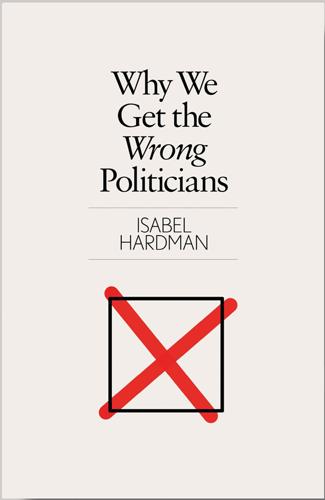
Why We Get the Wrong Politicians
by Isabel Hardman · 14 Jun 2018 · 333pp · 99,545 words
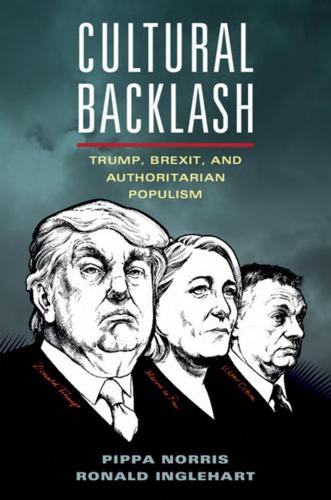
Cultural Backlash: Trump, Brexit, and Authoritarian Populism
by Pippa Norris and Ronald Inglehart · 31 Dec 2018
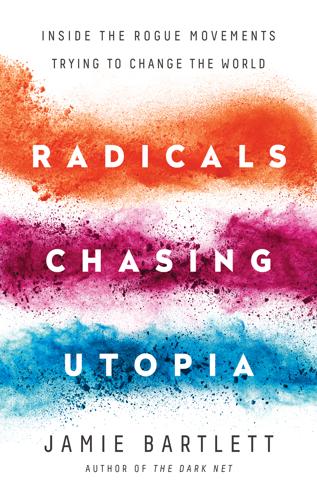
Radicals Chasing Utopia: Inside the Rogue Movements Trying to Change the World
by Jamie Bartlett · 12 Jun 2017 · 390pp · 109,870 words

Brexit, No Exit: Why in the End Britain Won't Leave Europe
by Denis MacShane · 14 Jul 2017 · 308pp · 99,298 words
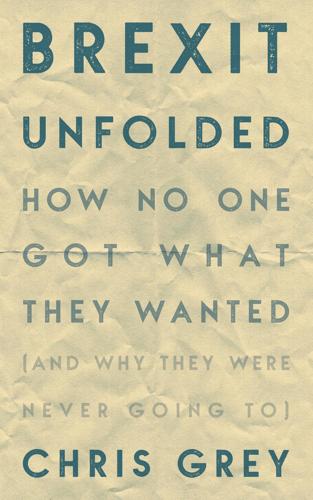
Brexit Unfolded: How No One Got What They Want (And Why They Were Never Going To)
by Chris Grey · 22 Jun 2021 · 334pp · 91,722 words
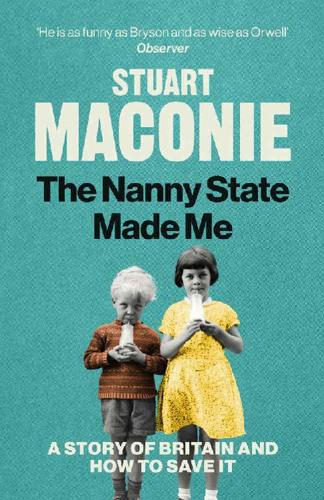
The Nanny State Made Me: A Story of Britain and How to Save It
by Stuart Maconie · 5 Mar 2020 · 300pp · 106,520 words
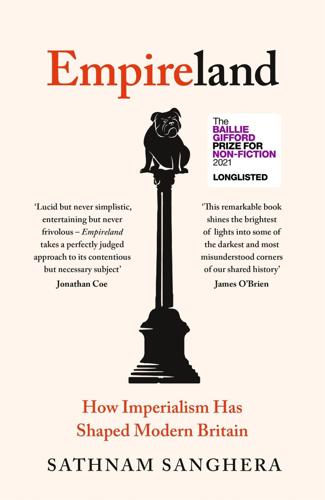
Empireland: How Imperialism Has Shaped Modern Britain
by Sathnam Sanghera · 28 Jan 2021 · 430pp · 111,038 words
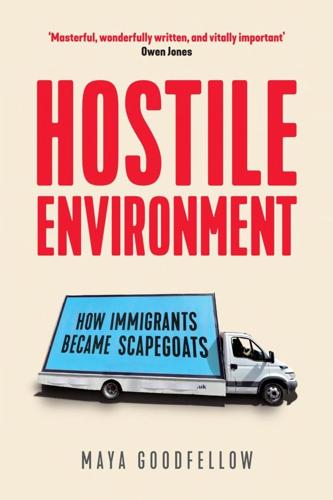
Hostile Environment: How Immigrants Became Scapegoats
by Maya Goodfellow · 5 Nov 2019 · 273pp · 83,802 words

England: Seven Myths That Changed a Country – and How to Set Them Straight
by Tom Baldwin and Marc Stears · 24 Apr 2024 · 357pp · 132,377 words
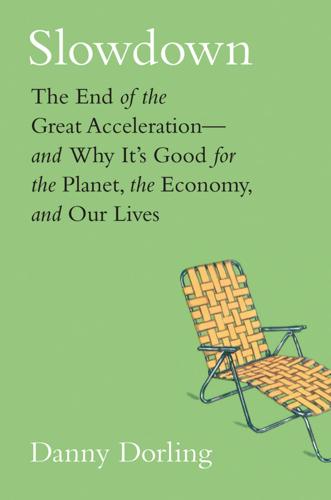
Slowdown: The End of the Great Acceleration―and Why It’s Good for the Planet, the Economy, and Our Lives
by Danny Dorling and Kirsten McClure · 18 May 2020 · 459pp · 138,689 words
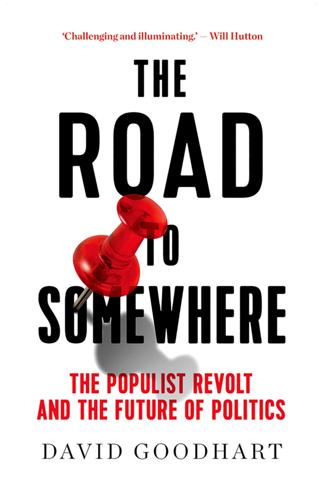
The Road to Somewhere: The Populist Revolt and the Future of Politics
by David Goodhart · 7 Jan 2017 · 382pp · 100,127 words
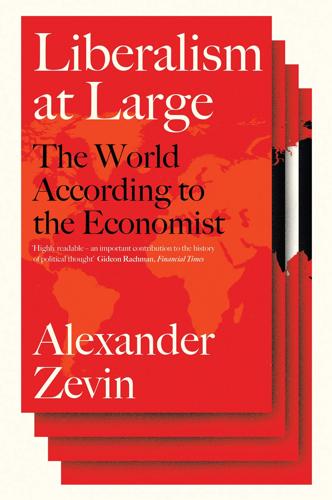
Liberalism at Large: The World According to the Economist
by Alex Zevin · 12 Nov 2019 · 767pp · 208,933 words
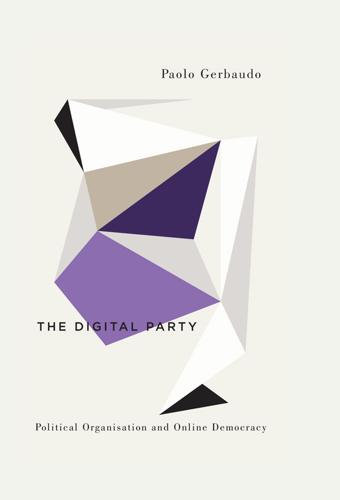
The Digital Party: Political Organisation and Online Democracy
by Paolo Gerbaudo · 19 Jul 2018 · 302pp · 84,881 words
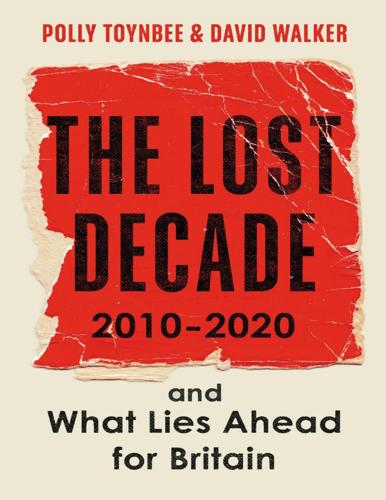
The Lost Decade: 2010–2020, and What Lies Ahead for Britain
by Polly Toynbee and David Walker · 3 Mar 2020 · 279pp · 90,888 words
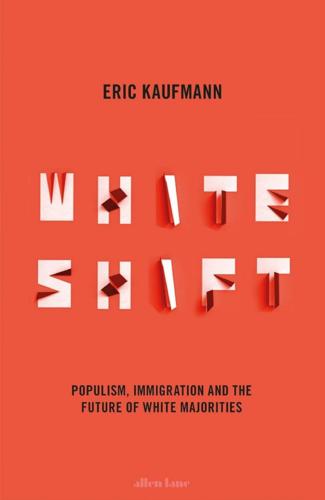
Whiteshift: Populism, Immigration and the Future of White Majorities
by Eric Kaufmann · 24 Oct 2018 · 691pp · 203,236 words
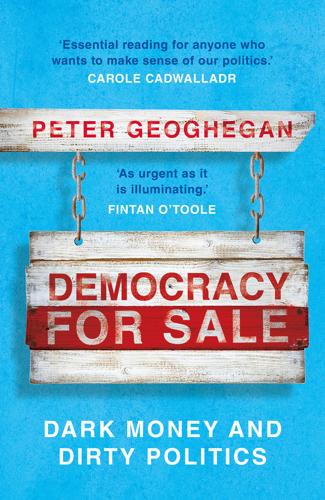
Democracy for Sale: Dark Money and Dirty Politics
by Peter Geoghegan · 2 Jan 2020 · 388pp · 111,099 words
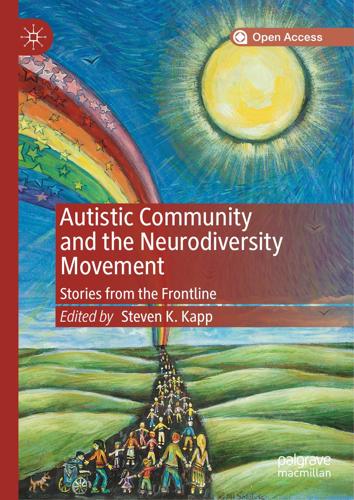
Autistic Community and the Neurodiversity Movement: Stories From the Frontline
by Steven K. Kapp · 19 Nov 2019

Failures of State: The Inside Story of Britain's Battle With Coronavirus
by Jonathan Calvert and George Arbuthnott · 18 Mar 2021 · 432pp · 143,491 words
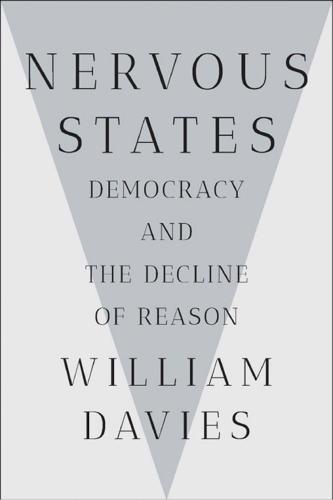
Nervous States: Democracy and the Decline of Reason
by William Davies · 26 Feb 2019 · 349pp · 98,868 words
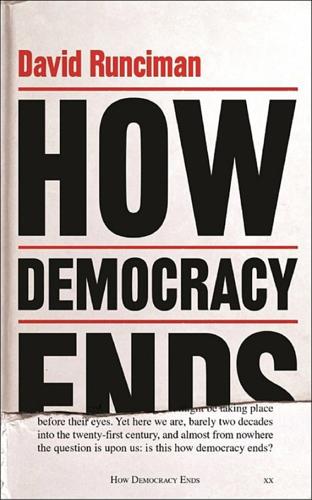
How Democracy Ends
by David Runciman · 9 May 2018 · 245pp · 72,893 words
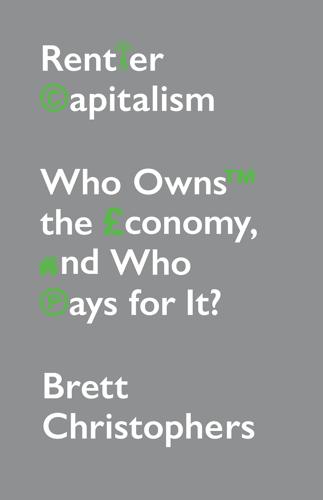
Rentier Capitalism: Who Owns the Economy, and Who Pays for It?
by Brett Christophers · 17 Nov 2020 · 614pp · 168,545 words
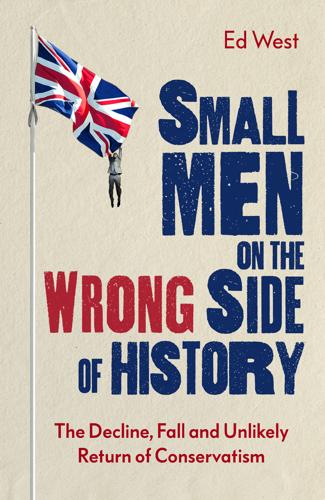
Small Men on the Wrong Side of History: The Decline, Fall and Unlikely Return of Conservatism
by Ed West · 19 Mar 2020 · 530pp · 147,851 words
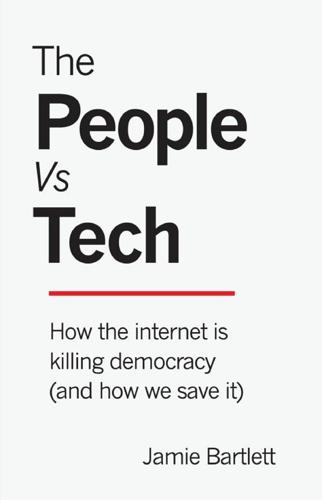
The People vs Tech: How the Internet Is Killing Democracy (And How We Save It)
by Jamie Bartlett · 4 Apr 2018 · 170pp · 49,193 words
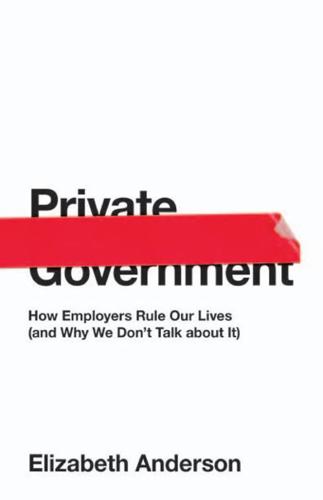
Private Government: How Employers Rule Our Lives (And Why We Don't Talk About It)
by Elizabeth S. Anderson · 22 May 2017 · 205pp · 58,054 words

Greater: Britain After the Storm
by Penny Mordaunt and Chris Lewis · 19 May 2021 · 516pp · 116,875 words
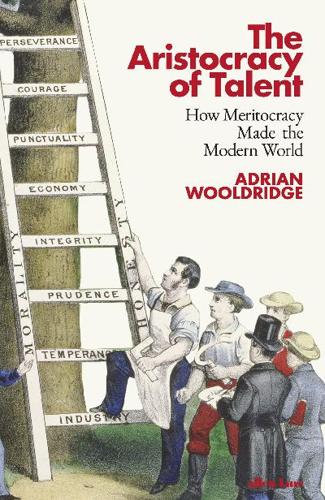
The Aristocracy of Talent: How Meritocracy Made the Modern World
by Adrian Wooldridge · 2 Jun 2021 · 693pp · 169,849 words
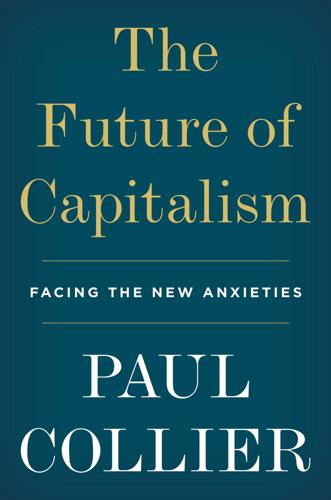
The Future of Capitalism: Facing the New Anxieties
by Paul Collier · 4 Dec 2018 · 310pp · 85,995 words

Who Owns England?: How We Lost Our Green and Pleasant Land, and How to Take It Back
by Guy Shrubsole · 1 May 2019 · 505pp · 133,661 words

Marx at the Arcade: Consoles, Controllers, and Class Struggle
by Jamie Woodcock · 17 Jun 2019 · 236pp · 62,158 words
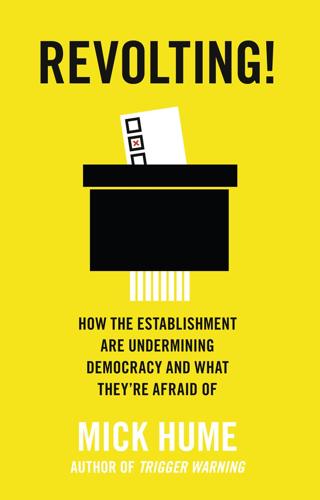
Revolting!: How the Establishment Are Undermining Democracy and What They're Afraid Of
by Mick Hume · 23 Feb 2017 · 228pp · 68,880 words
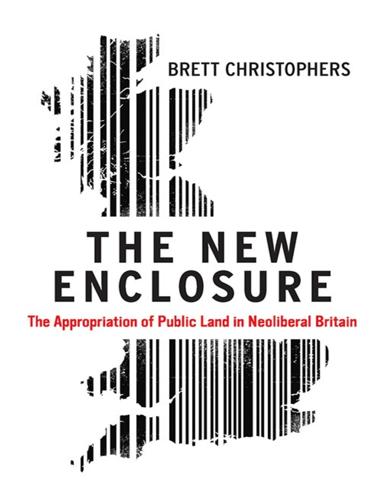
The New Enclosure: The Appropriation of Public Land in Neoliberal Britain
by Brett Christophers · 6 Nov 2018

The Glass Half-Empty: Debunking the Myth of Progress in the Twenty-First Century
by Rodrigo Aguilera · 10 Mar 2020 · 356pp · 106,161 words
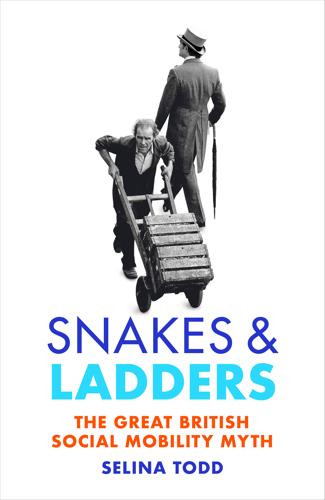
Snakes and Ladders: The Great British Social Mobility Myth
by Selina Todd · 11 Feb 2021 · 598pp · 150,801 words
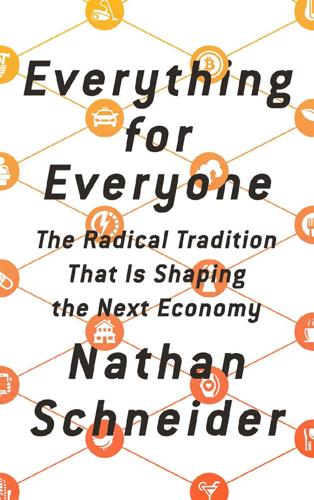
Everything for Everyone: The Radical Tradition That Is Shaping the Next Economy
by Nathan Schneider · 10 Sep 2018 · 326pp · 91,559 words
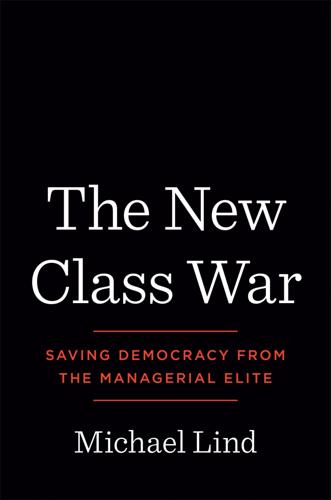
The New Class War: Saving Democracy From the Metropolitan Elite
by Michael Lind · 20 Feb 2020

Municipal Dreams: The Rise and Fall of Council Housing
by John Boughton · 14 May 2018 · 325pp · 89,374 words
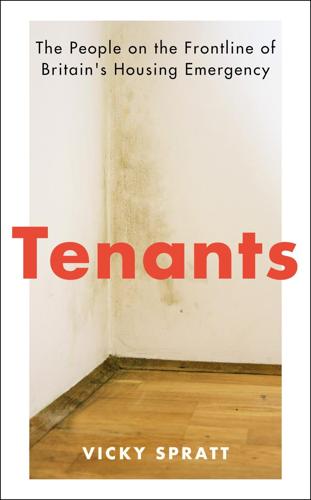
Tenants: The People on the Frontline of Britain's Housing Emergency
by Vicky Spratt · 18 May 2022 · 371pp · 122,273 words
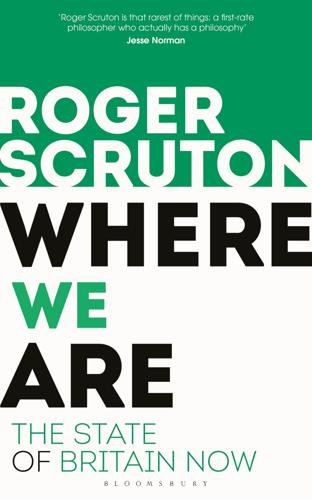
Where We Are: The State of Britain Now
by Roger Scruton · 16 Nov 2017 · 190pp · 56,531 words
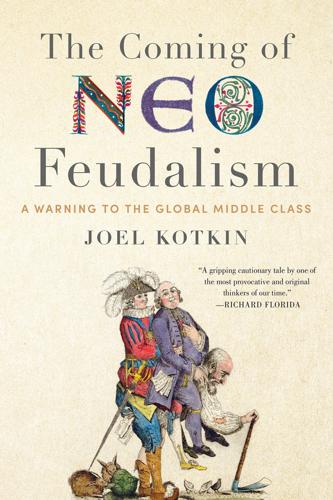
The Coming of Neo-Feudalism: A Warning to the Global Middle Class
by Joel Kotkin · 11 May 2020 · 393pp · 91,257 words
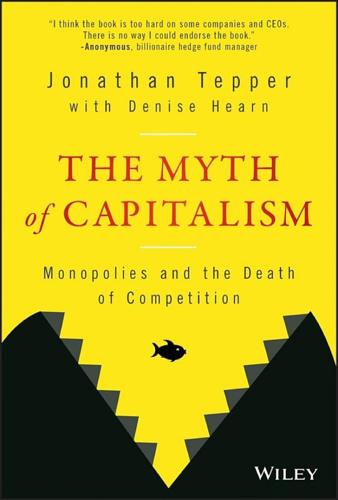
The Myth of Capitalism: Monopolies and the Death of Competition
by Jonathan Tepper · 20 Nov 2018 · 417pp · 97,577 words
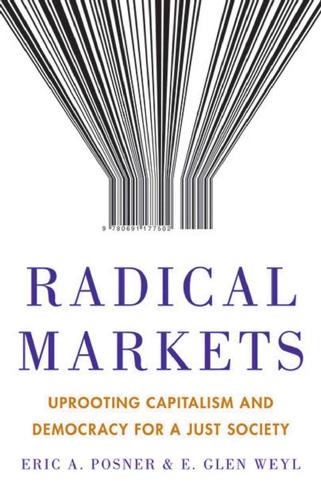
Radical Markets: Uprooting Capitalism and Democracy for a Just Society
by Eric Posner and E. Weyl · 14 May 2018 · 463pp · 105,197 words
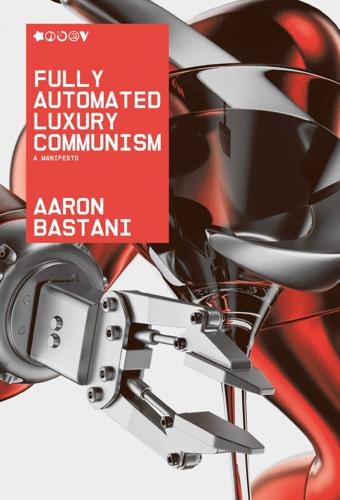
Fully Automated Luxury Communism
by Aaron Bastani · 10 Jun 2019 · 280pp · 74,559 words
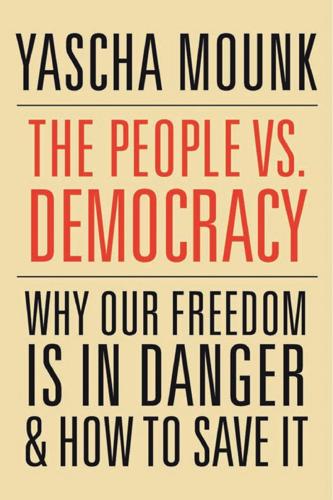
The People vs. Democracy: Why Our Freedom Is in Danger and How to Save It
by Yascha Mounk · 15 Feb 2018 · 497pp · 123,778 words
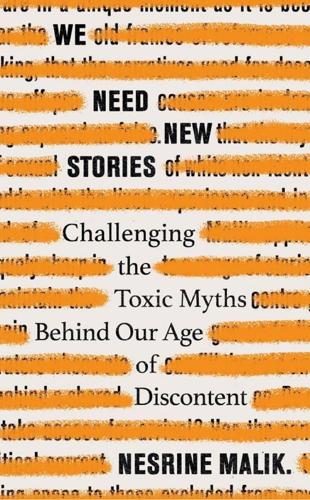
We Need New Stories: Challenging the Toxic Myths Behind Our Age of Discontent
by Nesrine Malik · 4 Sep 2019
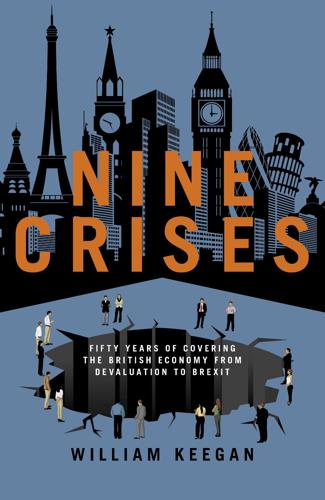
Nine Crises: Fifty Years of Covering the British Economy From Devaluation to Brexit
by William Keegan · 24 Jan 2019 · 309pp · 85,584 words
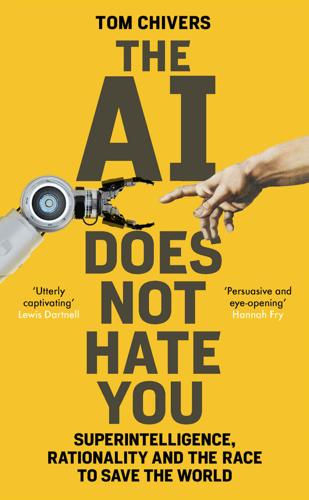
The Rationalist's Guide to the Galaxy: Superintelligent AI and the Geeks Who Are Trying to Save Humanity's Future
by Tom Chivers · 12 Jun 2019 · 289pp · 92,714 words
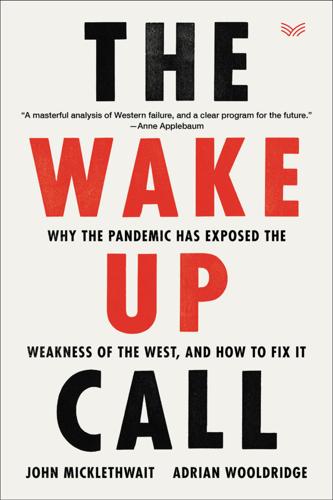
The Wake-Up Call: Why the Pandemic Has Exposed the Weakness of the West, and How to Fix It
by John Micklethwait and Adrian Wooldridge · 1 Sep 2020 · 134pp · 41,085 words
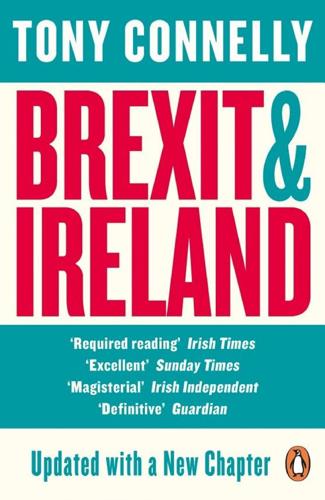
Brexit and Ireland: The Dangers, the Opportunities, and the Inside Story of the Irish Response
by Tony Connelly · 4 Oct 2017 · 356pp · 112,271 words
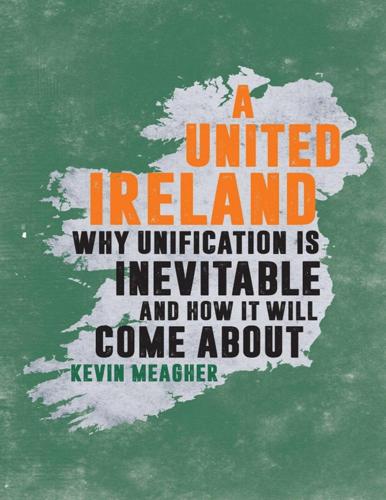
A United Ireland: Why Unification Is Inevitable and How It Will Come About
by Kevin Meagher · 15 Nov 2016

London Review of Books
by London Review of Books · 14 Dec 2017 · 174pp · 58,894 words
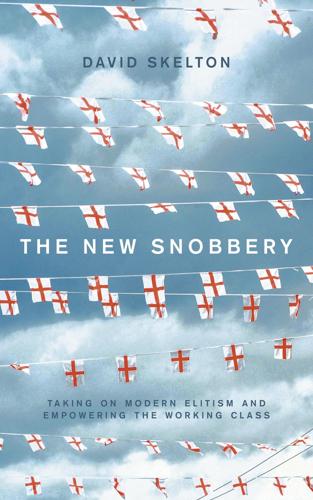
The New Snobbery
by David Skelton · 28 Jun 2021 · 226pp · 58,341 words
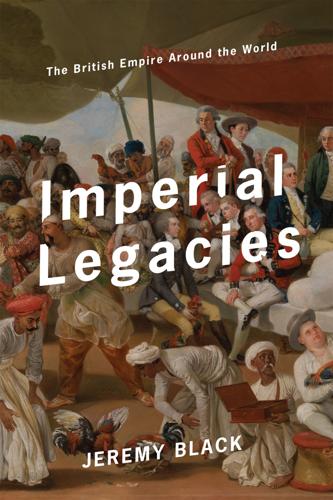
Imperial Legacies
by Jeremy Black; · 14 Jul 2019 · 264pp · 74,688 words
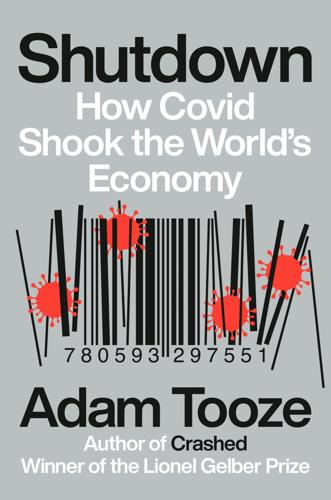
Shutdown: How COVID Shook the World's Economy
by Adam Tooze · 15 Nov 2021 · 561pp · 138,158 words
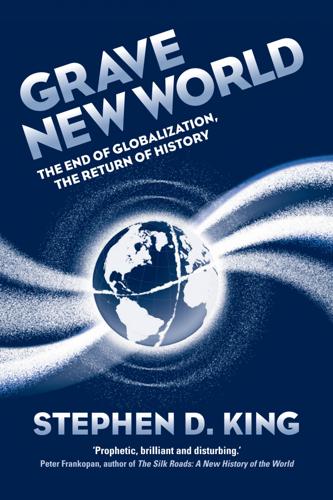
Grave New World: The End of Globalization, the Return of History
by Stephen D. King · 22 May 2017 · 354pp · 92,470 words
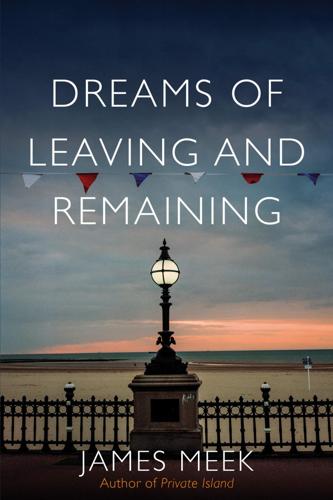
Dreams of Leaving and Remaining
by James Meek · 5 Mar 2019 · 232pp · 76,830 words
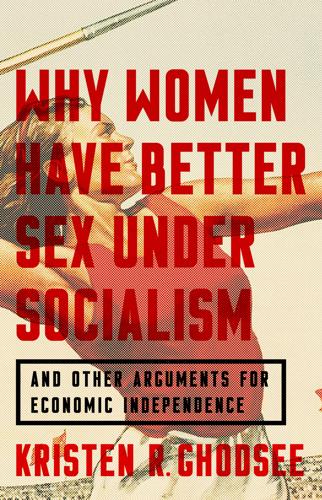
Why Women Have Better Sex Under Socialism: And Other Arguments for Economic Independence
by Kristen R. Ghodsee · 20 Nov 2018 · 211pp · 57,759 words
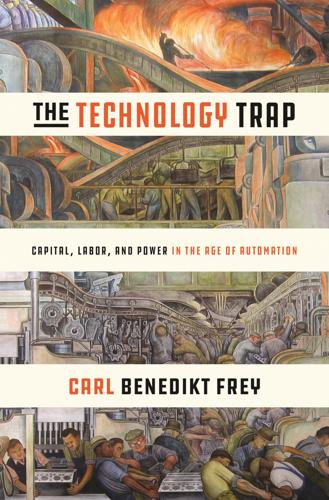
The Technology Trap: Capital, Labor, and Power in the Age of Automation
by Carl Benedikt Frey · 17 Jun 2019 · 626pp · 167,836 words
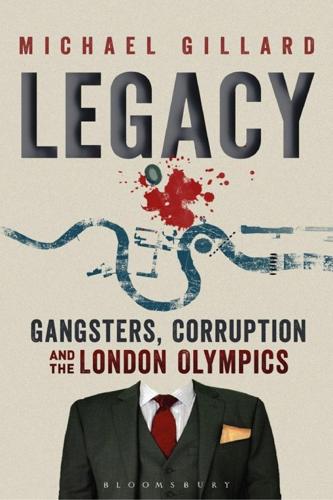
Legacy: Gangsters, Corruption and the London Olympics
by Michael Gillard · 24 Jul 2019 · 365pp · 102,306 words
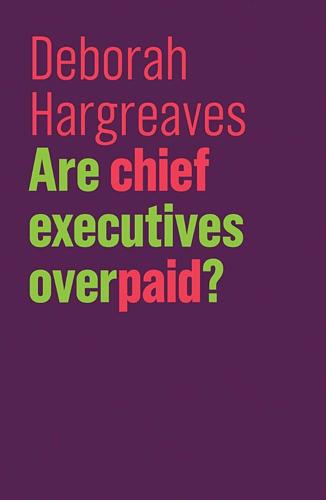
Are Chief Executives Overpaid?
by Deborah Hargreaves · 29 Nov 2018 · 98pp · 27,201 words
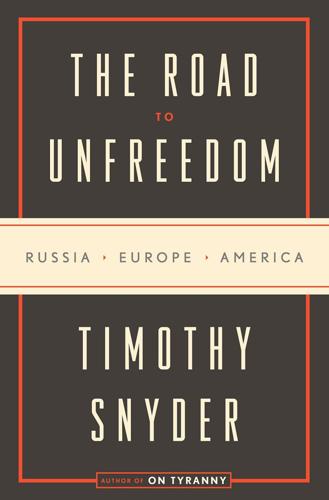
The Road to Unfreedom: Russia, Europe, America
by Timothy Snyder · 2 Apr 2018

The Rough Guide to England
by Rough Guides · 29 Mar 2018

Artificial Unintelligence: How Computers Misunderstand the World
by Meredith Broussard · 19 Apr 2018 · 245pp · 83,272 words

Israel: A Simple Guide to the Most Misunderstood Country on Earth
by Noa Tishby · 5 Apr 2021 · 338pp · 101,967 words

Ten Myths About Israel
by Ilan Pappe · 1 May 2017 · 196pp · 58,886 words

Among the Mosques: A Journey Across Muslim Britain
by Ed Husain · 9 Jun 2021 · 404pp · 110,290 words
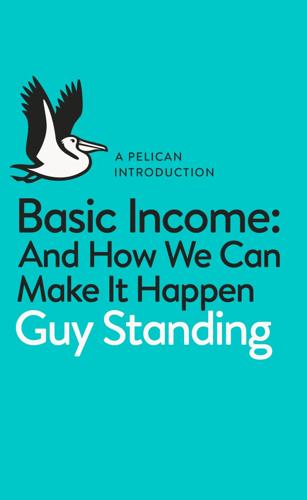
A Pelican Introduction: Basic Income
by Guy Standing · 3 May 2017 · 307pp · 82,680 words
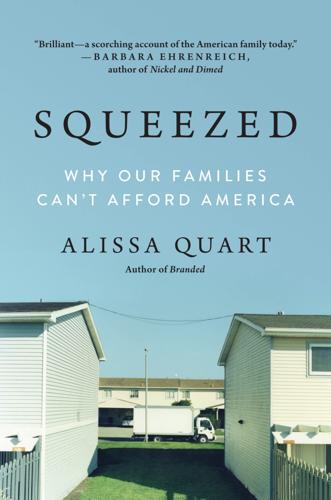
Squeezed: Why Our Families Can't Afford America
by Alissa Quart · 25 Jun 2018 · 320pp · 90,526 words
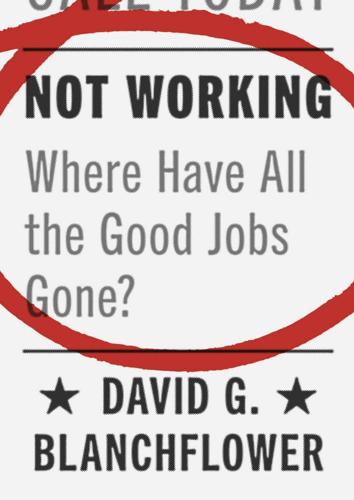
Not Working: Where Have All the Good Jobs Gone?
by David G. Blanchflower · 12 Apr 2021 · 566pp · 160,453 words
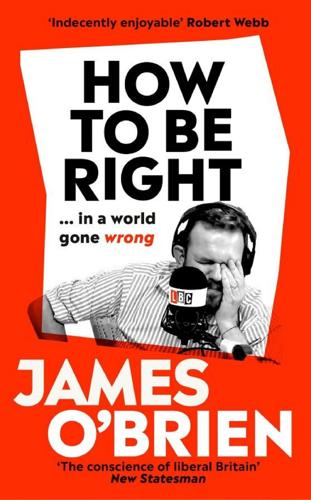
How to Be Right: In a World Gone Wrong
by James O'Brien · 2 Nov 2018 · 173pp · 52,725 words

Capitalism and Its Critics: A History: From the Industrial Revolution to AI
by John Cassidy · 12 May 2025 · 774pp · 238,244 words
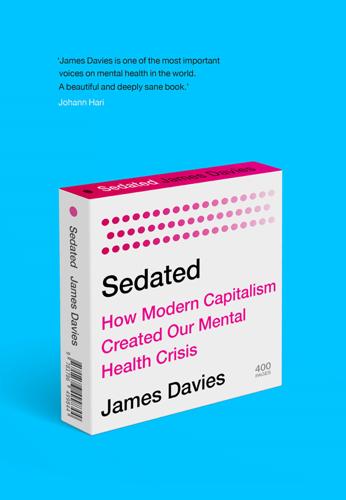
SEDATED: How Modern Capitalism Created Our Mental Health Crisis
by James. Davies · 15 Nov 2021 · 307pp · 88,085 words
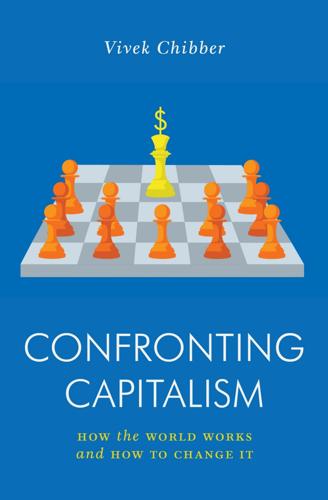
Confronting Capitalism: How the World Works and How to Change It
by Vivek Chibber · 30 Aug 2022 · 128pp · 41,187 words
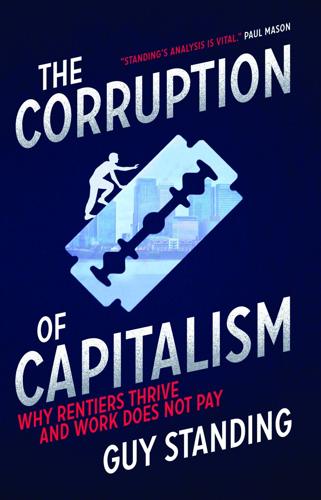
The Corruption of Capitalism: Why Rentiers Thrive and Work Does Not Pay
by Guy Standing · 13 Jul 2016 · 443pp · 98,113 words

Border and Rule: Global Migration, Capitalism, and the Rise of Racist Nationalism
by Harsha Walia · 9 Feb 2021
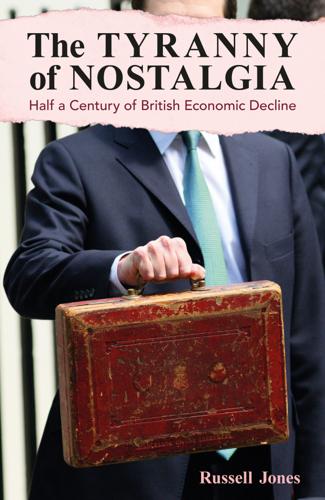
The Tyranny of Nostalgia: Half a Century of British Economic Decline
by Russell Jones · 15 Jan 2023 · 463pp · 140,499 words
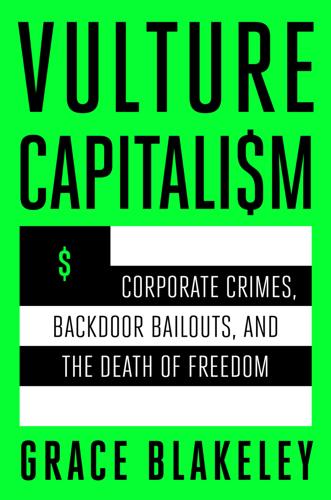
Vulture Capitalism: Corporate Crimes, Backdoor Bailouts, and the Death of Freedom
by Grace Blakeley · 11 Mar 2024 · 371pp · 137,268 words
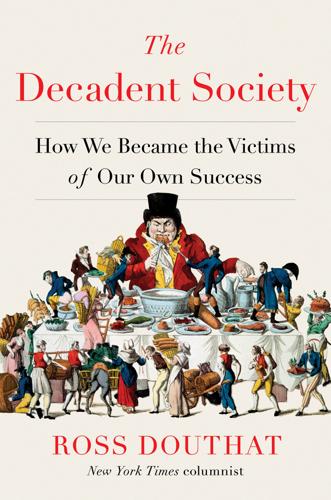
The Decadent Society: How We Became the Victims of Our Own Success
by Ross Douthat · 25 Feb 2020 · 324pp · 80,217 words
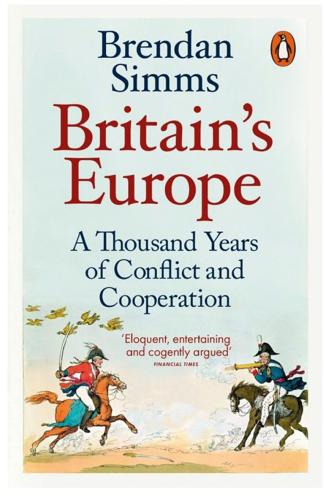
Britain's Europe: A Thousand Years of Conflict and Cooperation
by Brendan Simms · 27 Apr 2016 · 380pp · 116,919 words
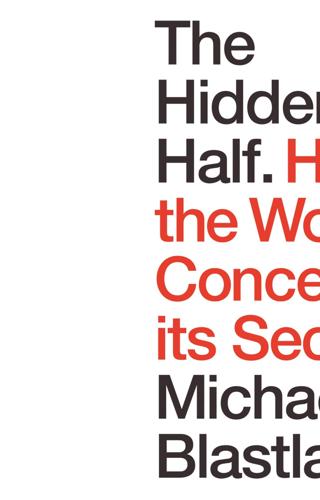
The Hidden Half: How the World Conceals Its Secrets
by Michael Blastland · 3 Apr 2019 · 290pp · 82,871 words
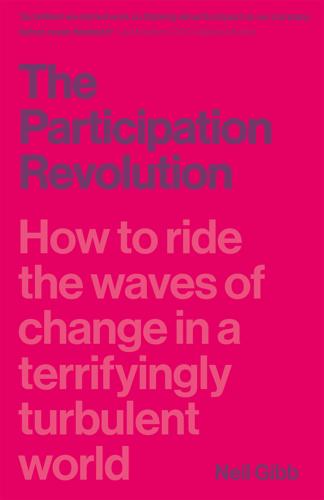
The Participation Revolution: How to Ride the Waves of Change in a Terrifyingly Turbulent World
by Neil Gibb · 15 Feb 2018 · 217pp · 63,287 words
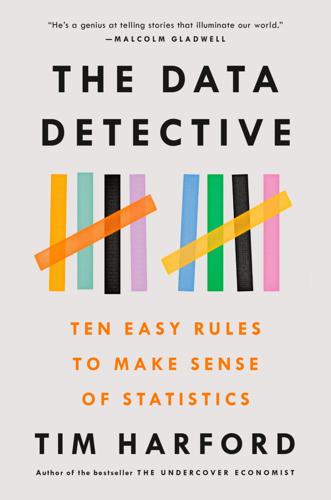
The Data Detective: Ten Easy Rules to Make Sense of Statistics
by Tim Harford · 2 Feb 2021 · 428pp · 103,544 words
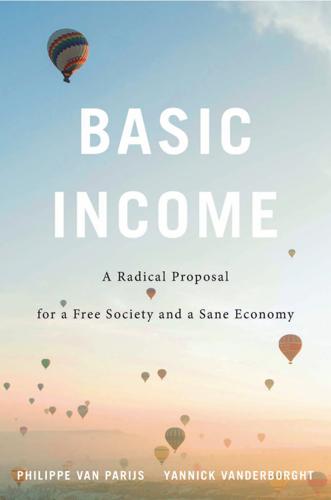
Basic Income: A Radical Proposal for a Free Society and a Sane Economy
by Philippe van Parijs and Yannick Vanderborght · 20 Mar 2017
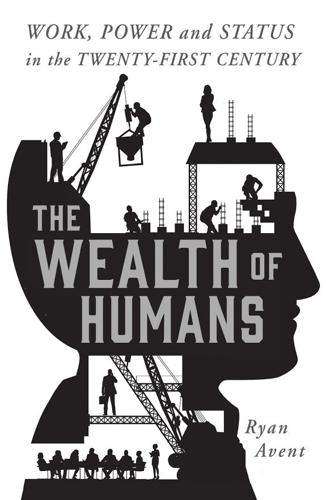
The Wealth of Humans: Work, Power, and Status in the Twenty-First Century
by Ryan Avent · 20 Sep 2016 · 323pp · 90,868 words
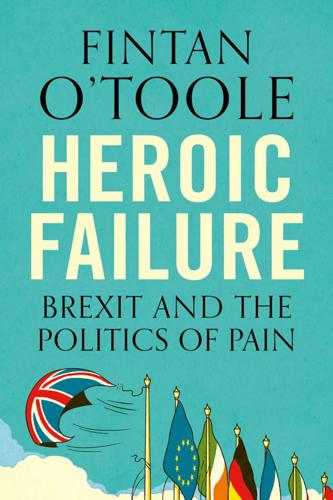
Heroic Failure: Brexit and the Politics of Pain
by Fintan O'Toole · 22 Jan 2018 · 200pp · 64,329 words

The Twittering Machine
by Richard Seymour · 20 Aug 2019 · 297pp · 83,651 words

On Her Majesty's Nuclear Service
by Eric Thompson · 18 Apr 2018 · 379pp · 118,576 words
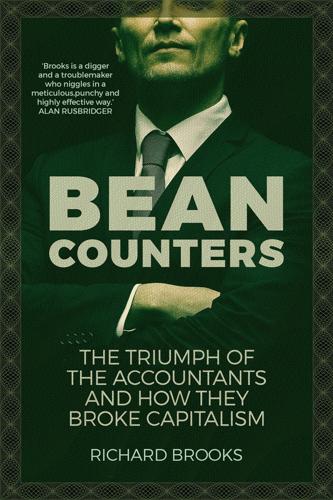
Bean Counters: The Triumph of the Accountants and How They Broke Capitalism
by Richard Brooks · 23 Apr 2018 · 398pp · 105,917 words

Other Pandemic: How QAnon Contaminated the World
by James Ball · 19 Jul 2023 · 317pp · 87,048 words
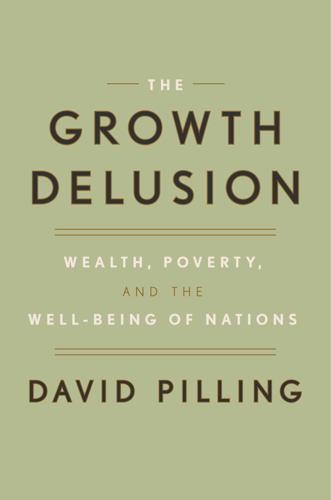
The Growth Delusion: Wealth, Poverty, and the Well-Being of Nations
by David Pilling · 30 Jan 2018 · 264pp · 76,643 words
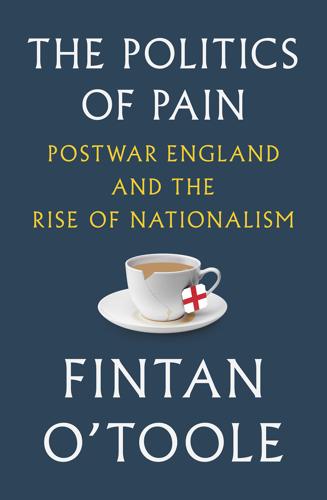
The Politics of Pain
by Fintan O'Toole · 2 Oct 2019
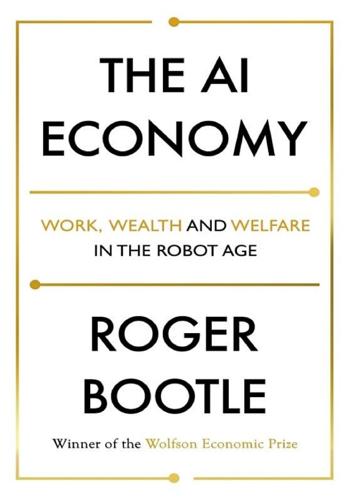
The AI Economy: Work, Wealth and Welfare in the Robot Age
by Roger Bootle · 4 Sep 2019 · 374pp · 111,284 words
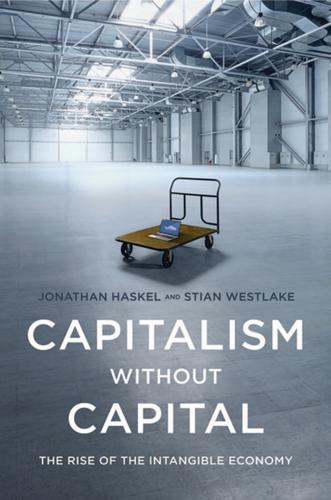
Capitalism Without Capital: The Rise of the Intangible Economy
by Jonathan Haskel and Stian Westlake · 7 Nov 2017 · 346pp · 89,180 words

Gaza: An Inquest Into Its Martyrdom
by Norman Finkelstein · 9 Jan 2018 · 578pp · 170,758 words
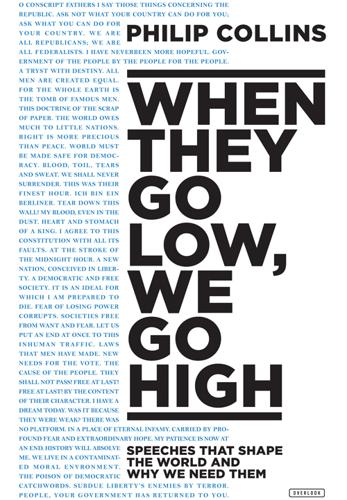
When They Go Low, We Go High: Speeches That Shape the World – and Why We Need Them
by Philip Collins · 4 Oct 2017 · 475pp · 156,046 words
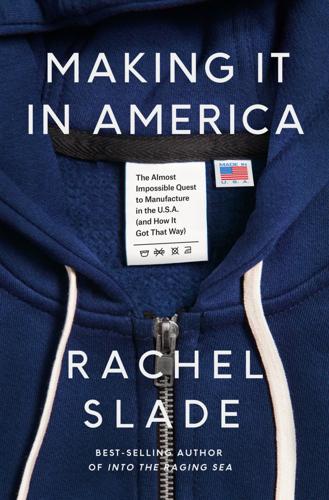
Making It in America: The Almost Impossible Quest to Manufacture in the U.S.A. (And How It Got That Way)
by Rachel Slade · 9 Jan 2024 · 392pp · 106,044 words
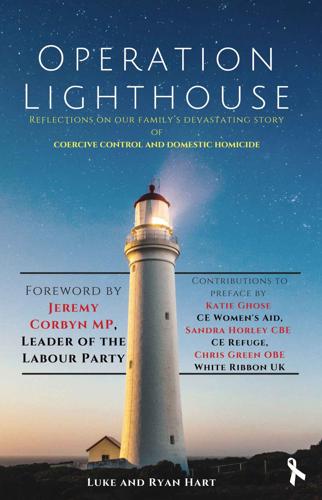
Operation Lighthouse: Reflections on Our Family's Devastating Story of Coercive Control and Domestic Homicide
by Luke Hart and Ryan Hart · 15 Jul 2018 · 174pp · 52,064 words
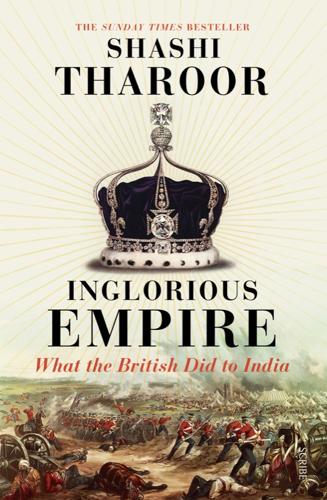
Inglorious Empire: What the British Did to India
by Shashi Tharoor · 1 Feb 2018 · 370pp · 111,129 words
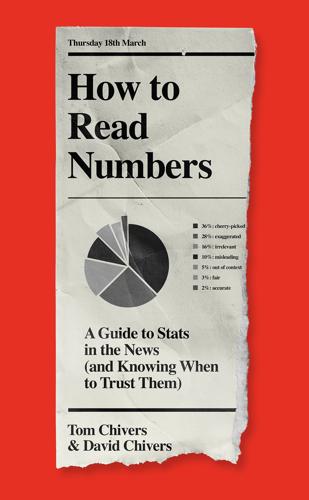
How to Read Numbers: A Guide to Statistics in the News (And Knowing When to Trust Them)
by Tom Chivers and David Chivers · 18 Mar 2021 · 172pp · 51,837 words
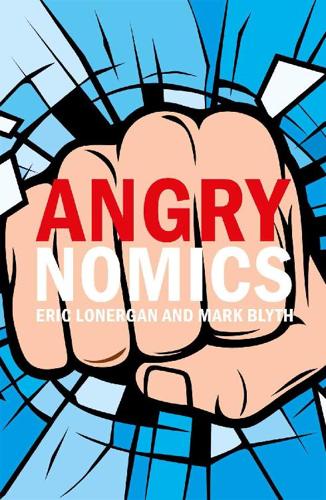
Angrynomics
by Eric Lonergan and Mark Blyth · 15 Jun 2020 · 194pp · 56,074 words
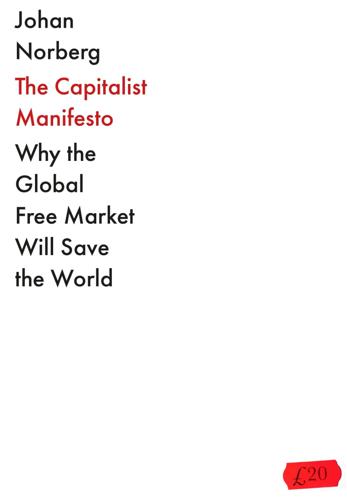
The Capitalist Manifesto
by Johan Norberg · 14 Jun 2023 · 295pp · 87,204 words

The Skripal Files
by Mark Urban · 291pp · 85,908 words

The Craft: How Freemasons Made the Modern World
by John Dickie · 3 Aug 2020
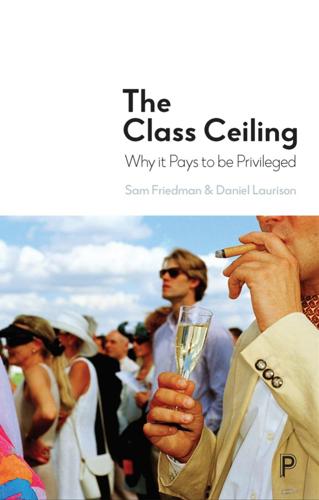
The Class Ceiling: Why It Pays to Be Privileged
by Sam Friedman and Daniel Laurison · 28 Jan 2019
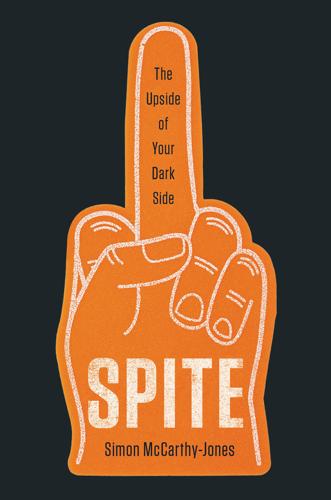
Spite: The Upside of Your Dark Side
by Simon McCarthy-Jones · 12 Apr 2021

There Is Nothing for You Here: Finding Opportunity in the Twenty-First Century
by Fiona Hill · 4 Oct 2021 · 569pp · 165,510 words

The Lonely Century: How Isolation Imperils Our Future
by Noreena Hertz · 13 May 2020 · 506pp · 133,134 words
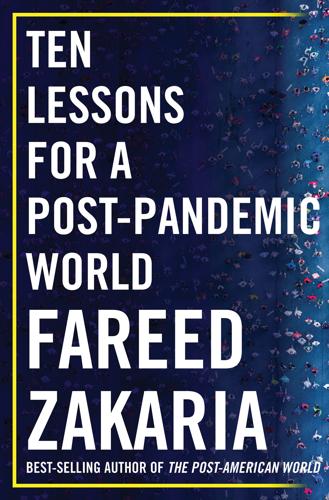
Ten Lessons for a Post-Pandemic World
by Fareed Zakaria · 5 Oct 2020 · 289pp · 86,165 words
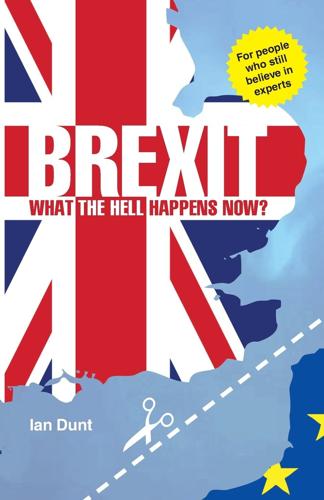
Brexit: What the Hell Happens Now?: The Facts About Britain's Bitter Divorce From Europe 2016
by Ian Dunt · 11 Apr 2017 · 158pp · 45,927 words

Roller-Coaster: Europe, 1950-2017
by Ian Kershaw · 29 Aug 2018 · 736pp · 233,366 words
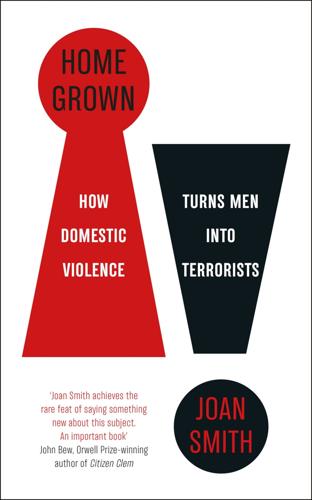
Home Grown: How Domestic Violence Turns Men Into Terrorists
by Joan Smith · 5 Apr 2019
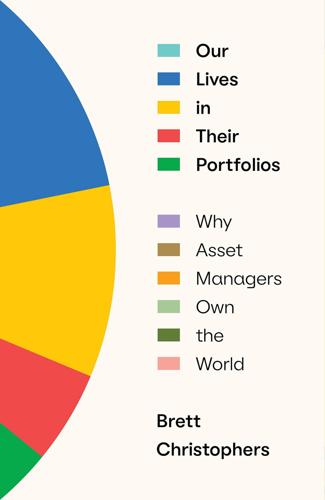
Our Lives in Their Portfolios: Why Asset Managers Own the World
by Brett Chistophers · 25 Apr 2023 · 404pp · 106,233 words
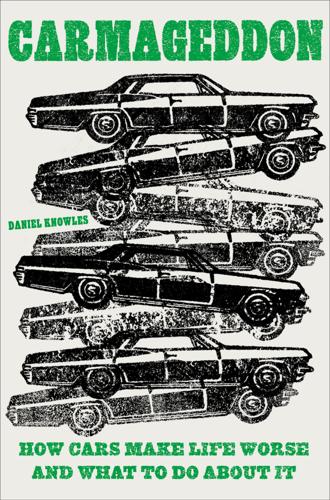
Carmageddon: How Cars Make Life Worse and What to Do About It
by Daniel Knowles · 27 Mar 2023 · 278pp · 91,332 words
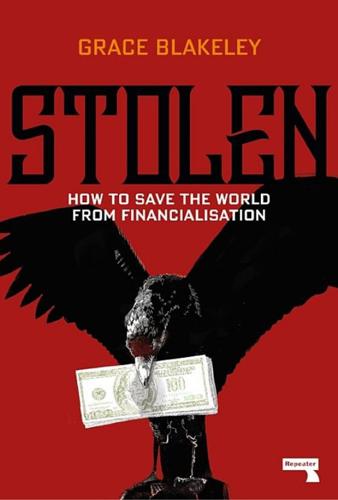
Stolen: How to Save the World From Financialisation
by Grace Blakeley · 9 Sep 2019 · 263pp · 80,594 words
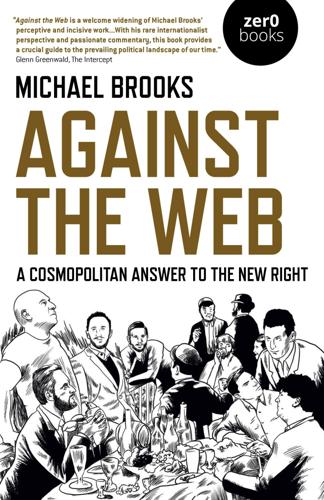
Against the Web: A Cosmopolitan Answer to the New Right
by Michael Brooks · 23 Apr 2020 · 88pp · 26,706 words

Inheritance
by Leo Hollis · 334pp · 103,106 words
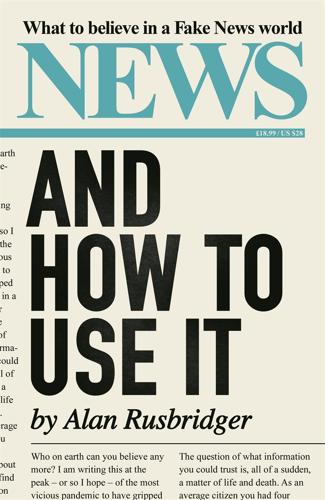
News and How to Use It: What to Believe in a Fake News World
by Alan Rusbridger · 26 Nov 2020 · 371pp · 109,320 words
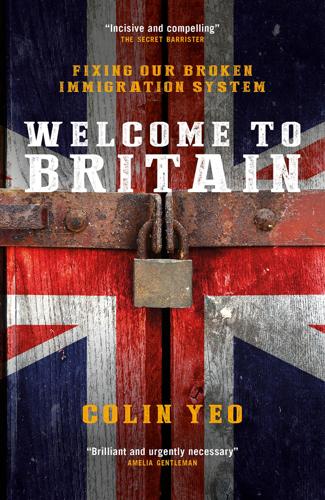
Welcome to Britain: Fixing Our Broken Immigration System
by Colin Yeo; · 15 Feb 2020 · 393pp · 102,801 words
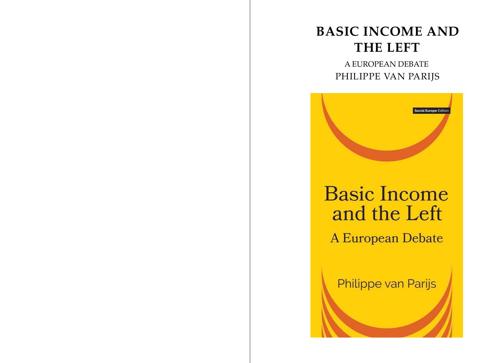
Basic Income And The Left
by henningmeyer · 16 May 2018
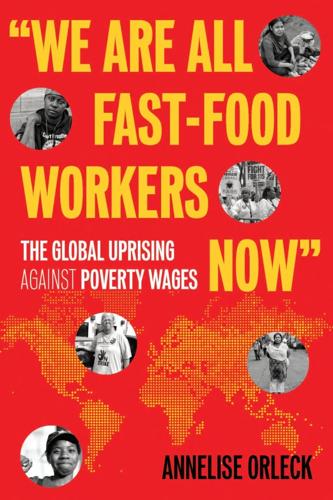
We Are All Fast-Food Workers Now: The Global Uprising Against Poverty Wages
by Annelise Orleck · 27 Feb 2018 · 382pp · 107,150 words

The Knife's Edge
by Stephen Westaby · 14 May 2019 · 259pp · 85,514 words
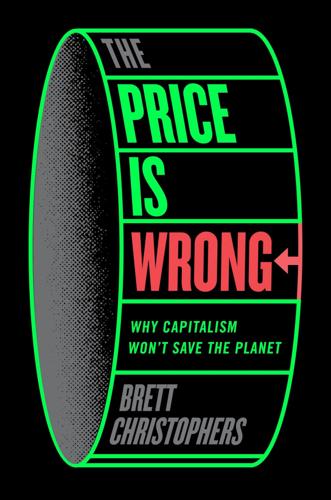
The Price Is Wrong: Why Capitalism Won't Save the Planet
by Brett Christophers · 12 Mar 2024 · 557pp · 154,324 words

The Breakup Monologues: The Unexpected Joy of Heartbreak
by Rosie Wilby · 26 May 2021 · 227pp · 67,264 words
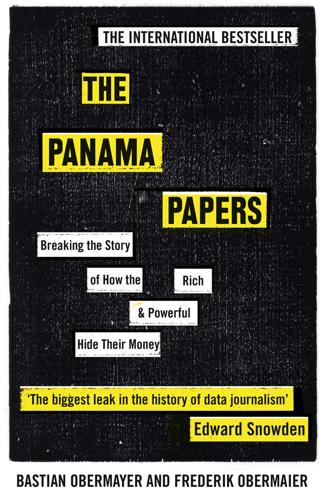
The Panama Papers: Breaking the Story of How the Rich and Powerful Hide Their Money
by Frederik Obermaier · 17 Jun 2016 · 372pp · 109,536 words
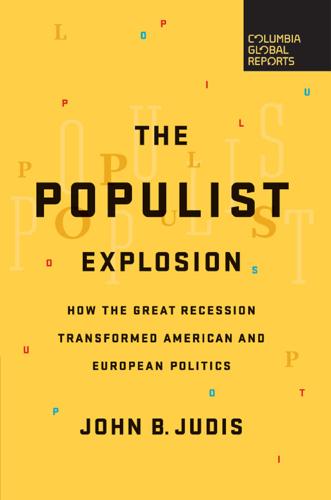
The Populist Explosion: How the Great Recession Transformed American and European Politics
by John B. Judis · 11 Sep 2016 · 177pp · 50,167 words
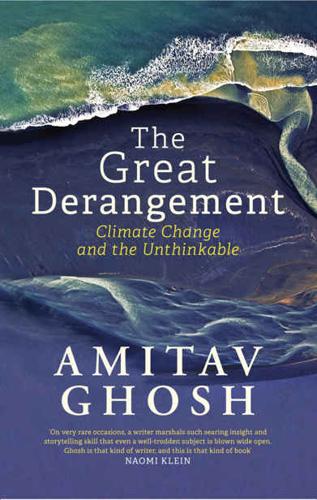
The Great Derangement: Climate Change and the Unthinkable
by Amitav Ghosh · 16 Jan 2018
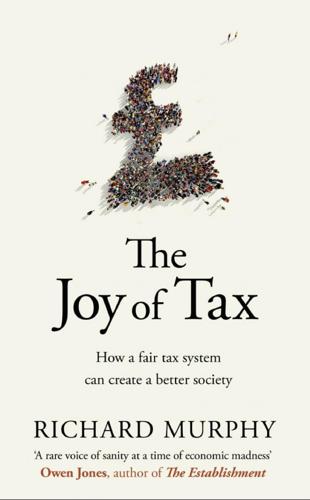
The Joy of Tax
by Richard Murphy · 30 Sep 2015 · 233pp · 71,775 words

This Is Not a Drill: An Extinction Rebellion Handbook
by Extinction Rebellion · 12 Jun 2019 · 138pp · 40,525 words
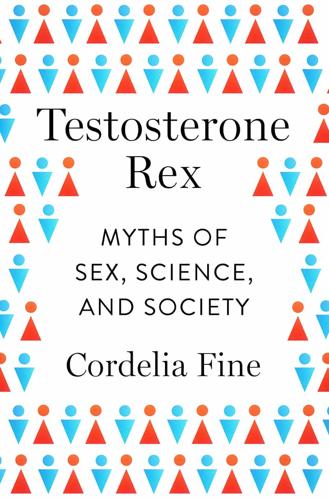
Testosterone Rex: Myths of Sex, Science, and Society
by Cordelia Fine · 13 Jan 2017 · 312pp · 83,998 words
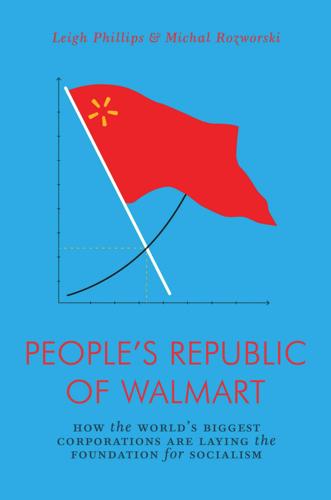
The People's Republic of Walmart: How the World's Biggest Corporations Are Laying the Foundation for Socialism
by Leigh Phillips and Michal Rozworski · 5 Mar 2019 · 202pp · 62,901 words